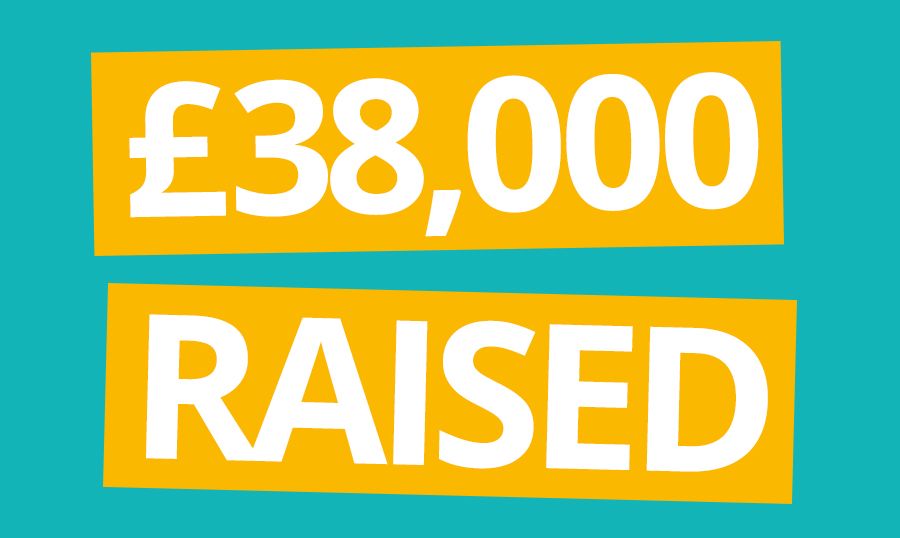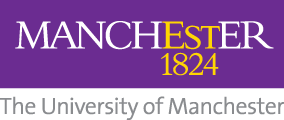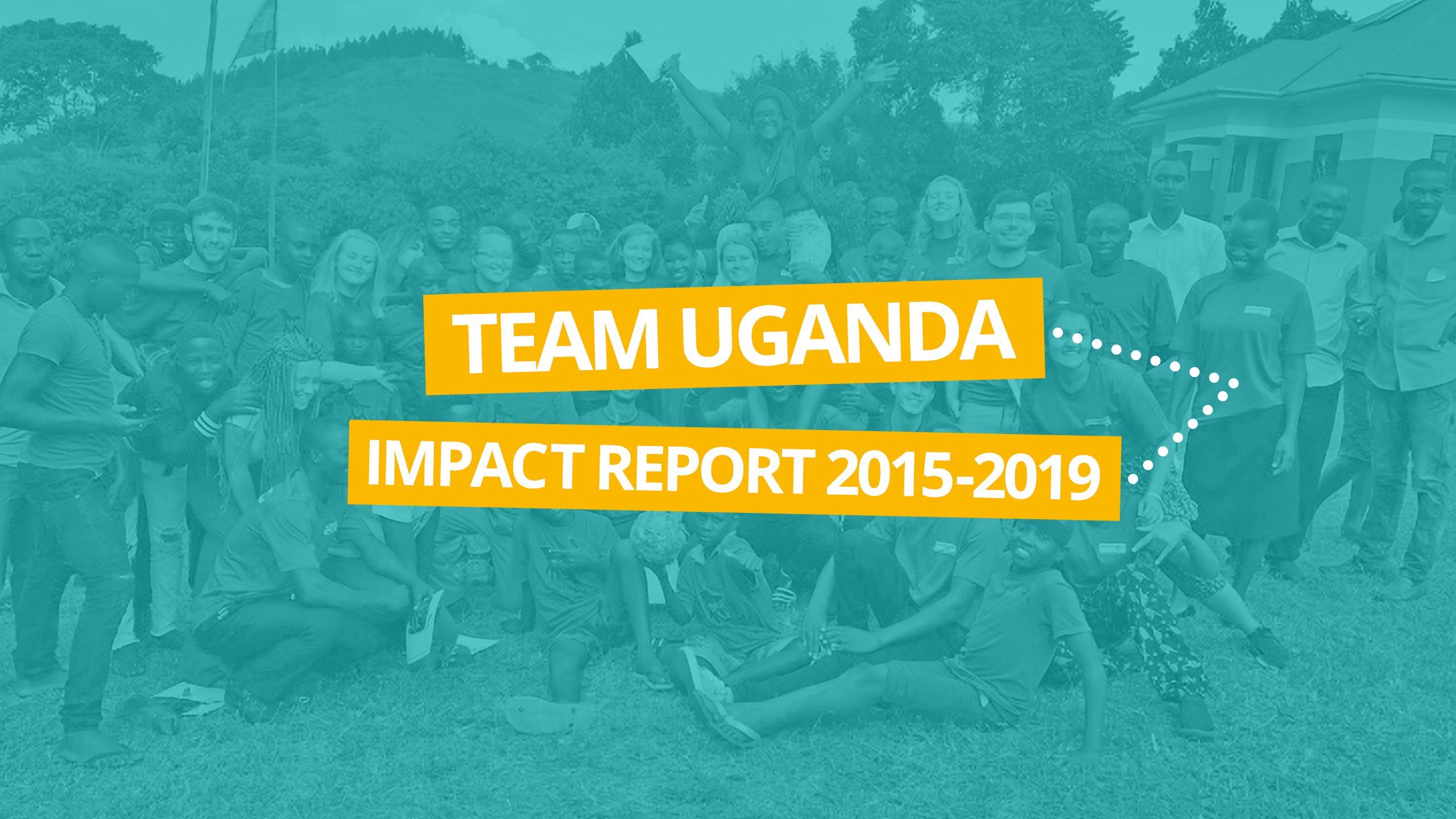
Team Uganda was The University of Manchester’s first flagship international volunteering programme, providing meaningful and transformative overseas volunteering opportunities for students. It was established on three core principles, being ethical, sustainable, and sound, with a focus on quality projects that had meaningful long-term outcomes for the organisation and the volunteers.
The programme was a partnership between the University and S.A.L.V.E. International (Support and Love Via Education), a charity working in Jinja, Uganda. S.A.L.V.E. works with children living on the streets, using the power of education to provide opportunities for them to leave their difficult pasts behind them and move off the streets towards a brighter future.
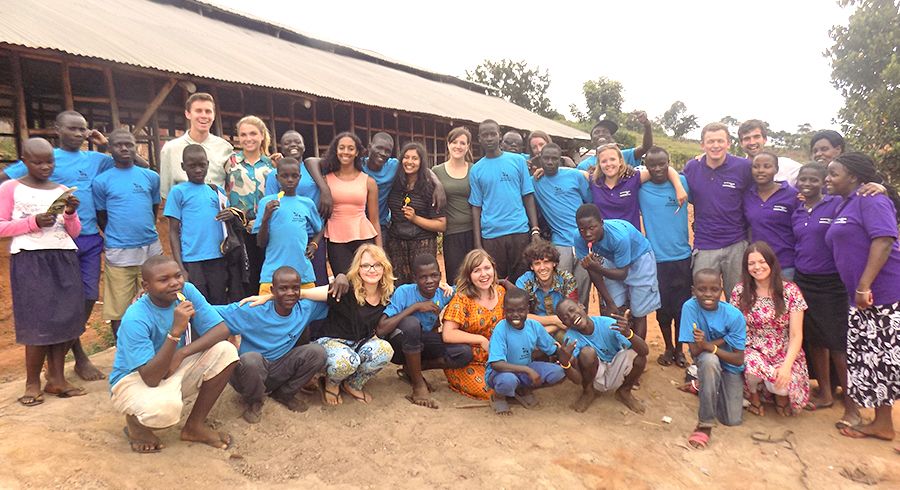
This programme ran between 2015 and 2019, and has delivered environmental, IT, community research and social enterprise projects and holiday camps. Across the five years over 70 students took part, contributing more than 14,000 hours of volunteering. Each year they were joined by Ugandan volunteers, working in mixed teams. The volunteers all stepped out of their comfort zones, embraced the culture of Uganda, dealt with the unexpected and worked hard to achieve ambitious outcomes, sharing their skills and adding value to S.A.L.V.E.’s work.
The projects, made possible thanks to the generosity of donors to the University, have been a great success and continue to have a real impact enriching the work of S.A.L.V.E. long after the volunteers arrived back home.
Here is the Team Uganda impact story.

50 miles from Uganda’s capital city, on the shores of Lake Victoria near the source of the River Nile, lies Jinja, the country’s second largest city. Its location and stunning beauty mean that Jinja is one of Uganda’s tourist hotspots. But if you look beyond the tourist attractions and industry, poverty can be worryingly commonplace. An alarming number of children in Jinja are forced to live and work on the streets.
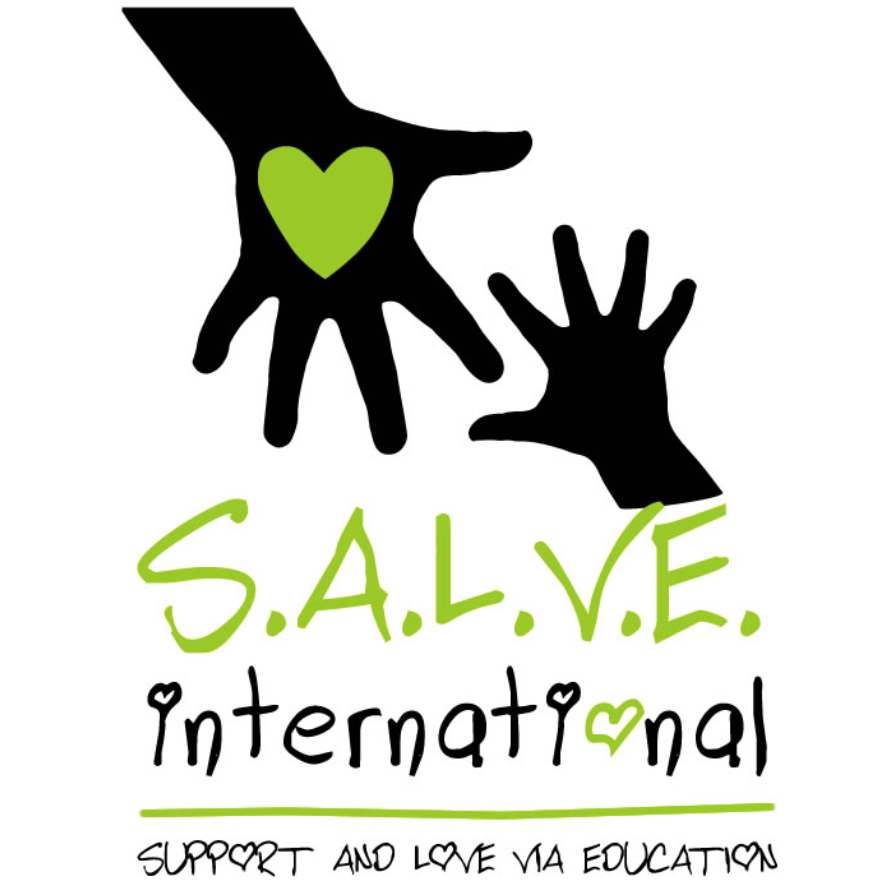
S.A.L.V.E International use education as a tool to help get children off the streets and improve their life chances. They support children living on the streets to return to their families and to re-enter education.
Where it is not possible for the child to resettle home straight away they provide a caring place for the child at the S.A.L.V.E. halfway home and support the child’s education while working towards future family resettlement. They also provide drug rehabilitation for children who are addicted to sniffing aeroplane fuel as a way of coping with life on the streets.
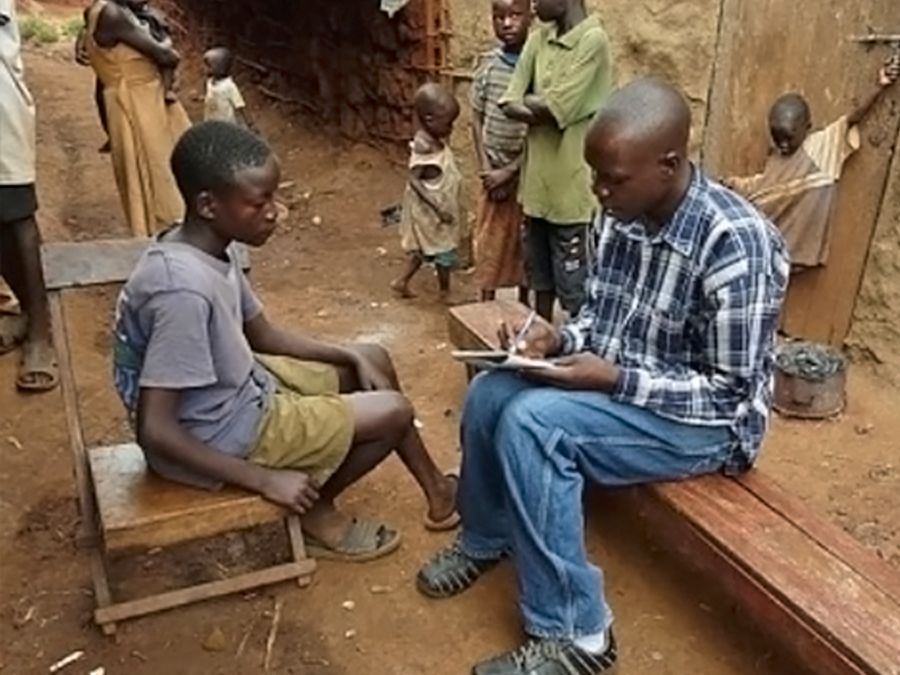
S.A.L.V.E.'s street outreach service in Jinja town is accessed by up to 40 children daily. Their staff build trusting relationships with the children and assist them to take the first steps in accessing their services, supporting them until their eventual move home. They also run business skills development projects for the families of children on the streets to help increase incomes and increase stability.
A short film produced by S.A.L.V.E. to showcase their activities.
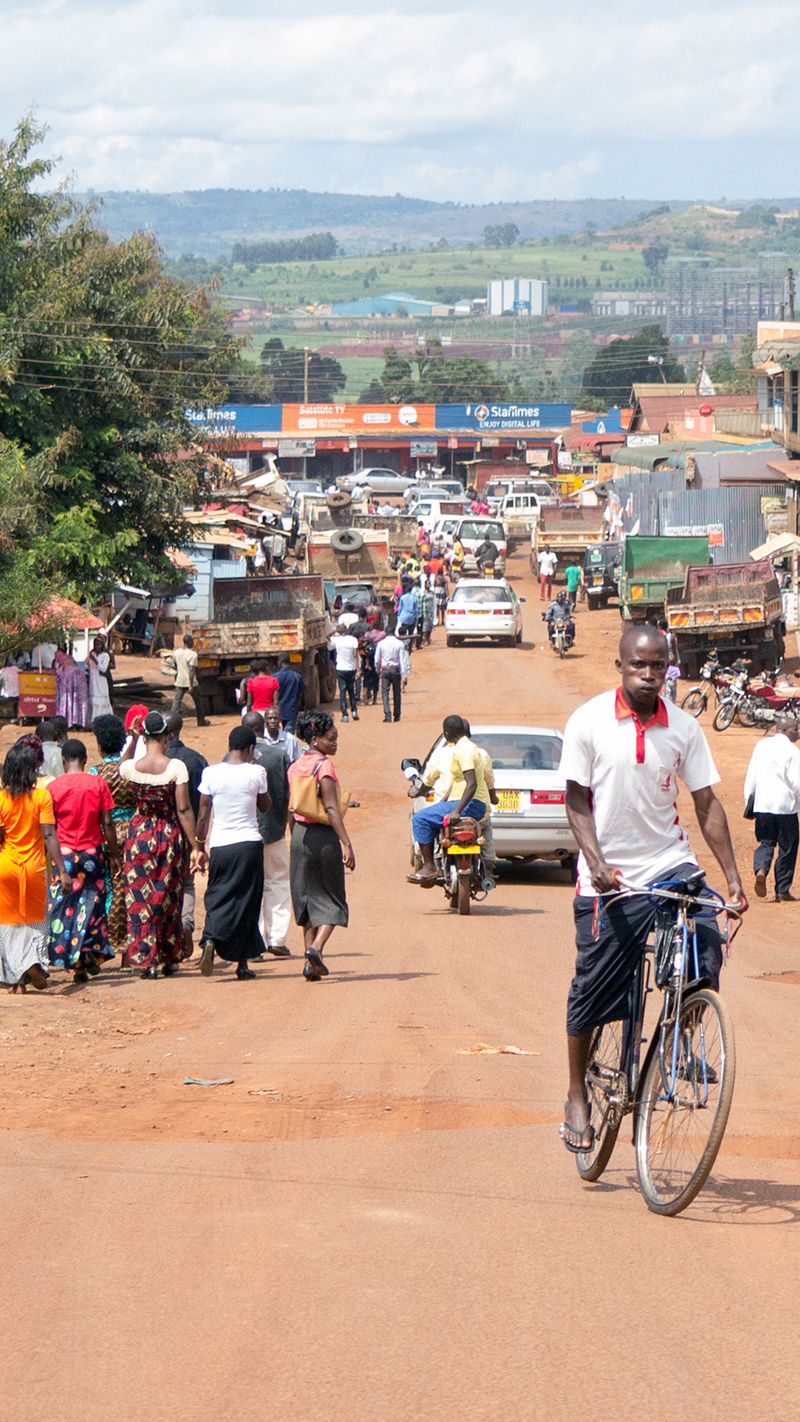
A busy street in Jinja
A busy street in Jinja
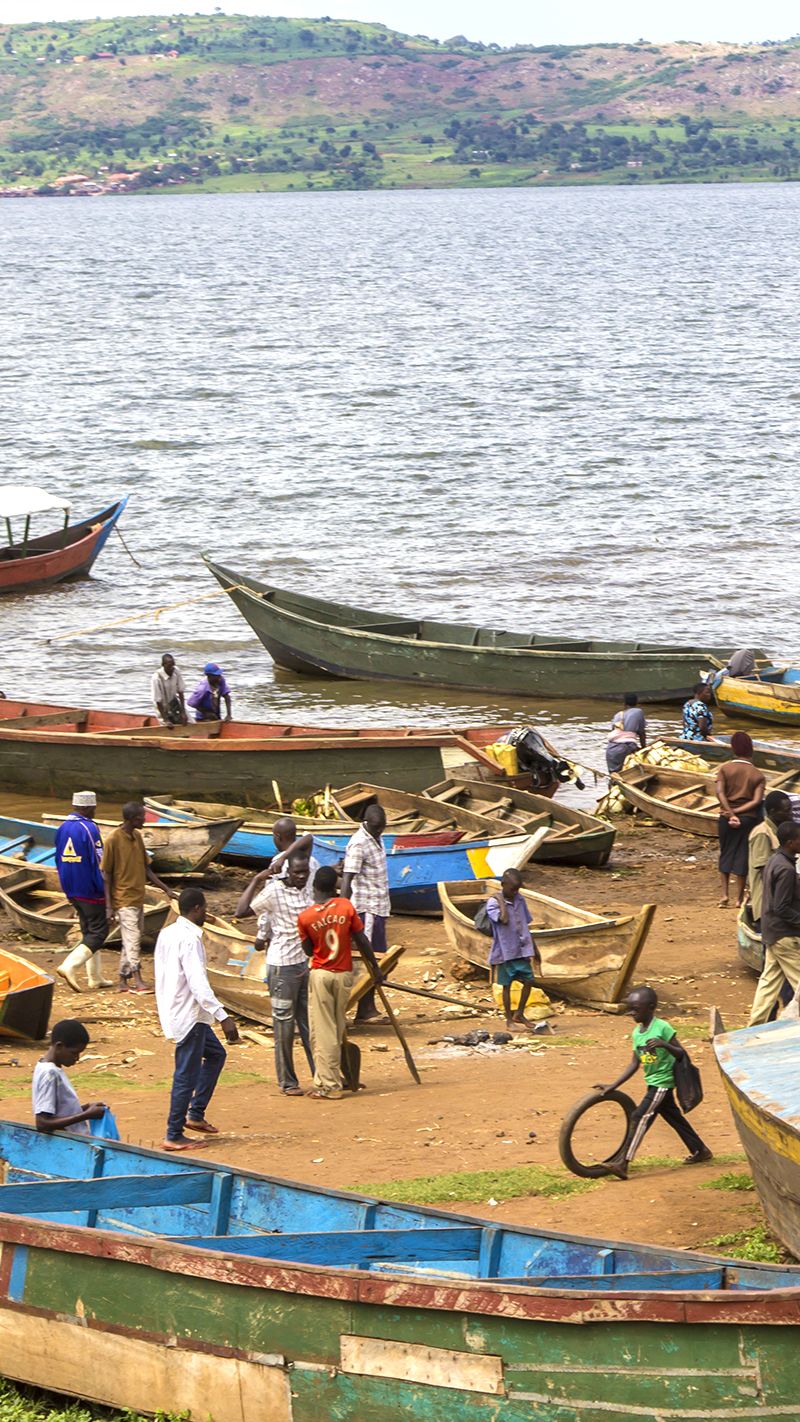
Fishermen in Jinja
Fishermen in Jinja

Team Uganda targets students from disadvantaged backgrounds and was established to provide an overseas opportunity for students who often face barriers to taking part. Volunteering abroad can be an enriching experience and a chance to build valuable skills and experience, but it can also be costly and time consuming, with high fundraising targets and intense preparation. This means the most disadvantaged students, who may have to use their spare time to earn money or who have caring responsibilities, often miss out.
Targeted programme funding and pre-departure support meant that students from a Widening Participation background were able to take part. This allowed the volunteers time to focus on the training, induction and project preparation, and a small amount of fundraising in the run up to the trip.
The training covered team work, cultural awareness, health and safety and project skills such as research, report writing and planning educational activities. This supported the students to develop skills, feel prepared and hit the ground running on arrival, taking the inevitable challenges of adjusting to a new country and culture in their stride.
Ashleigh was a Team Member in 2019 and was part of the Gender Team looking into interventions to support more girls into education.
Ashleigh talks about her involvement in the project
Ashleigh talks about her involvement in the project
"Ever since I was in high school, I have always wanted to be involved in an overseas social justice programme. I have never been to Africa and being of African descent, exploring my heritage whilst being able to make an impact is very personal to me. After hearing about Team Uganda, I was instantly interested. S.A.L.V.E. and similar organisations are massively inspirational to me, touching the lives of so many people, and helping people to pave a path towards a brighter future."
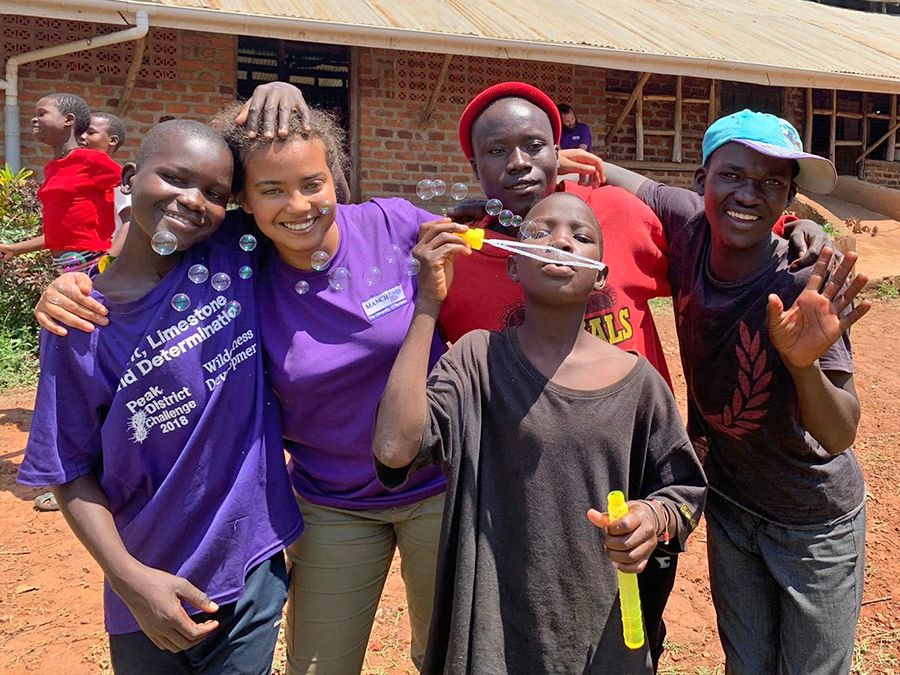
Ashleigh and some of the young people at the holiday camp
Ashleigh and some of the young people at the holiday camp
"It is a most fulfilling and brilliant experience to help a person, to help a community to see their full potential. Having been formerly in the care system I am able to empathise with the difficulty of coping with trying barriers and harsh realities. Team Uganda will give me the opportunity to use my experiences positively and learn things I might have never got the opportunity to learn had I not volunteered."
THE PROJECTS
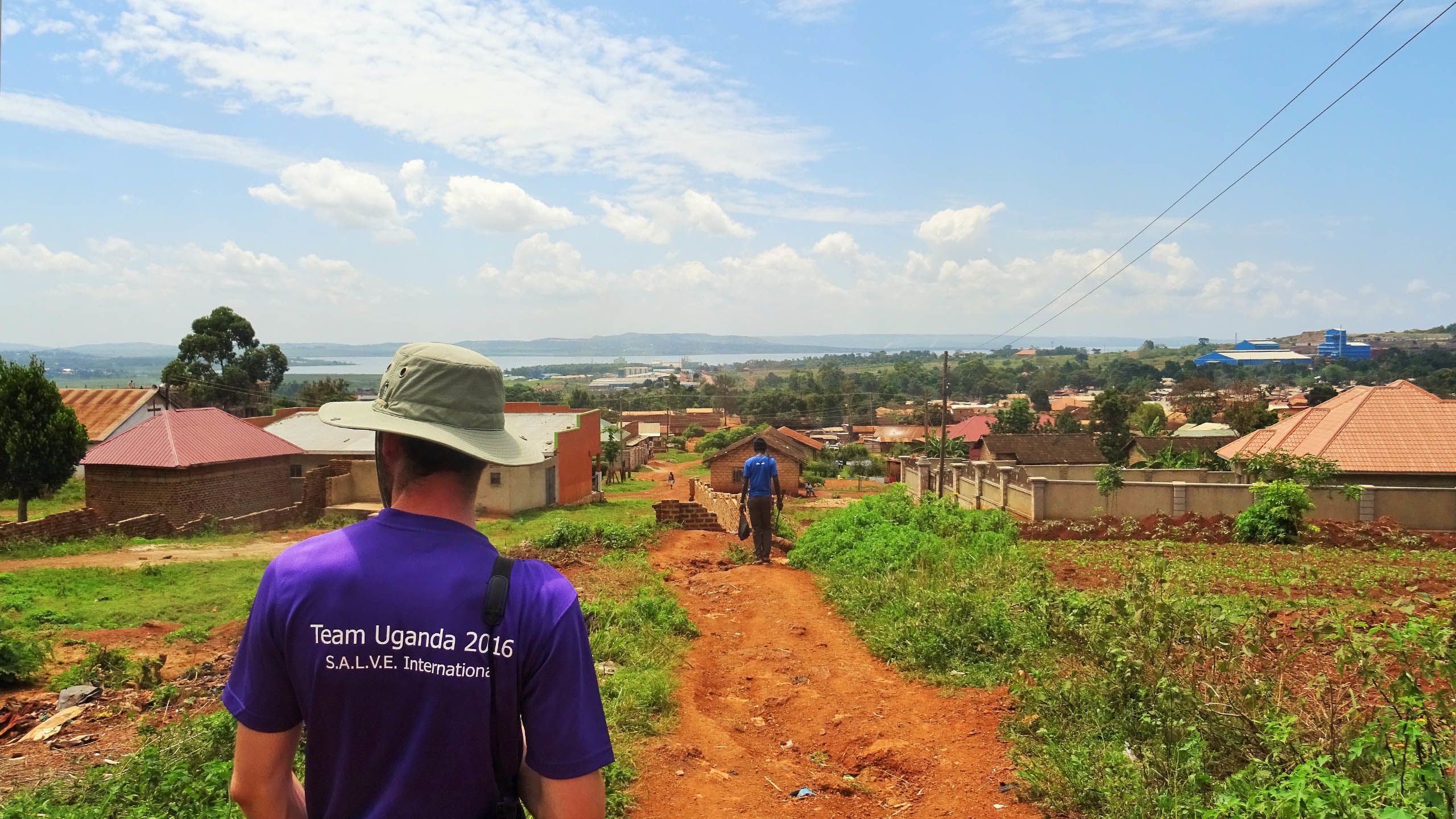
The projects were carefully planned to add value to S.A.L.V.E.'s core work, contributing to the organisation's growth and sustainability whilst supporting more children to be resettled off the streets. Each project was tailored to the students' skill set and designed to benefit from the collaborative efforts of the University of Manchester and Ugandan volunteers. Each year the projects built on the work of previous teams, whilst being responsive to the developing needs of S.A.L.V.E., ensuring continuity and long-term impact.
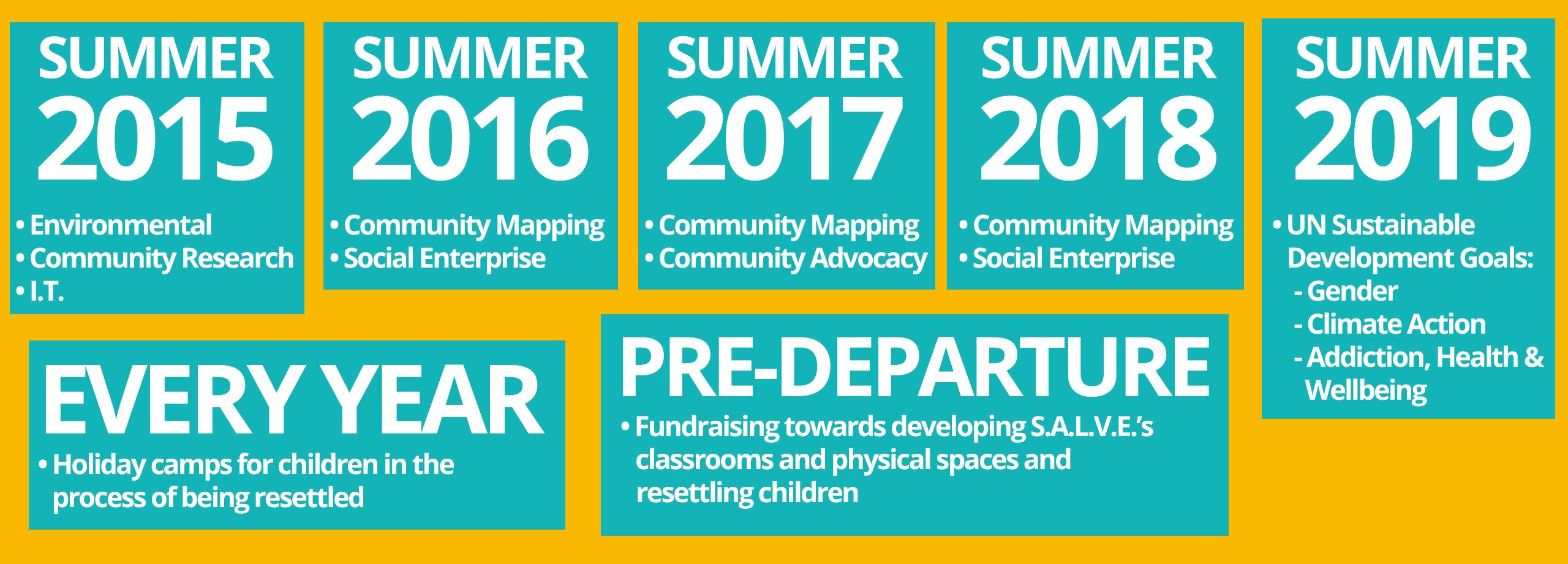

The aim of this project was to set up a crop system on the S.A.L.V.E. land in order to reduce food costs for children under their resettlement programme, and to research and make plans for the rest of the land for how it could be best used. The volunteers researched where cash crops would grow effectively, helped to set up chicken coops and established a composting system, all incorporating sustainable permaculture principles and helping to build a long term future for the land.
"The children really enjoyed helping with our aims -they have agriculture lessons and were enthusiastic to share their knowledge and skills, so planted sunflower seeds, made bee hives and did building work with us."
"This has benefited S.A.L.V.E.’s land as it is now producing its own food, something which would not have been achieved otherwise as staff are focused on working with the children, so it was a big development in making the land more suited to S.A.L.V.E.'s needs."
"The permaculture farm has left S.A.L.V.E. with the opportunity to reduce our food costs in the future, and a wider basic knowledge and understanding of permaculture principles that we can build on in the future to make ourselves more sustainable."

The aim of this project was to introduce computers to the children at the centre and develop their confidence and understanding in how to use them. This was important in growing skills for the children as knowledge of computer technology and I.T. skills could open doors to potential careers. Time was also taken to teach some S.A.L.V.E. staff computer and electronic skills so that they could carry on lessons and potentially also teach people in the wider community, to help open up more opportunities for them.
"For S.A.L.V.E. it was important as it gave the children in our Educational Sponsorship Programme the opportunity to learn I.T. skills, skills that are becoming more and more vital in Uganda for future employment. It also provided us with new resources such as lesson guides, which will be invaluable in educating the children in useful I.T. skills as we move forwards."
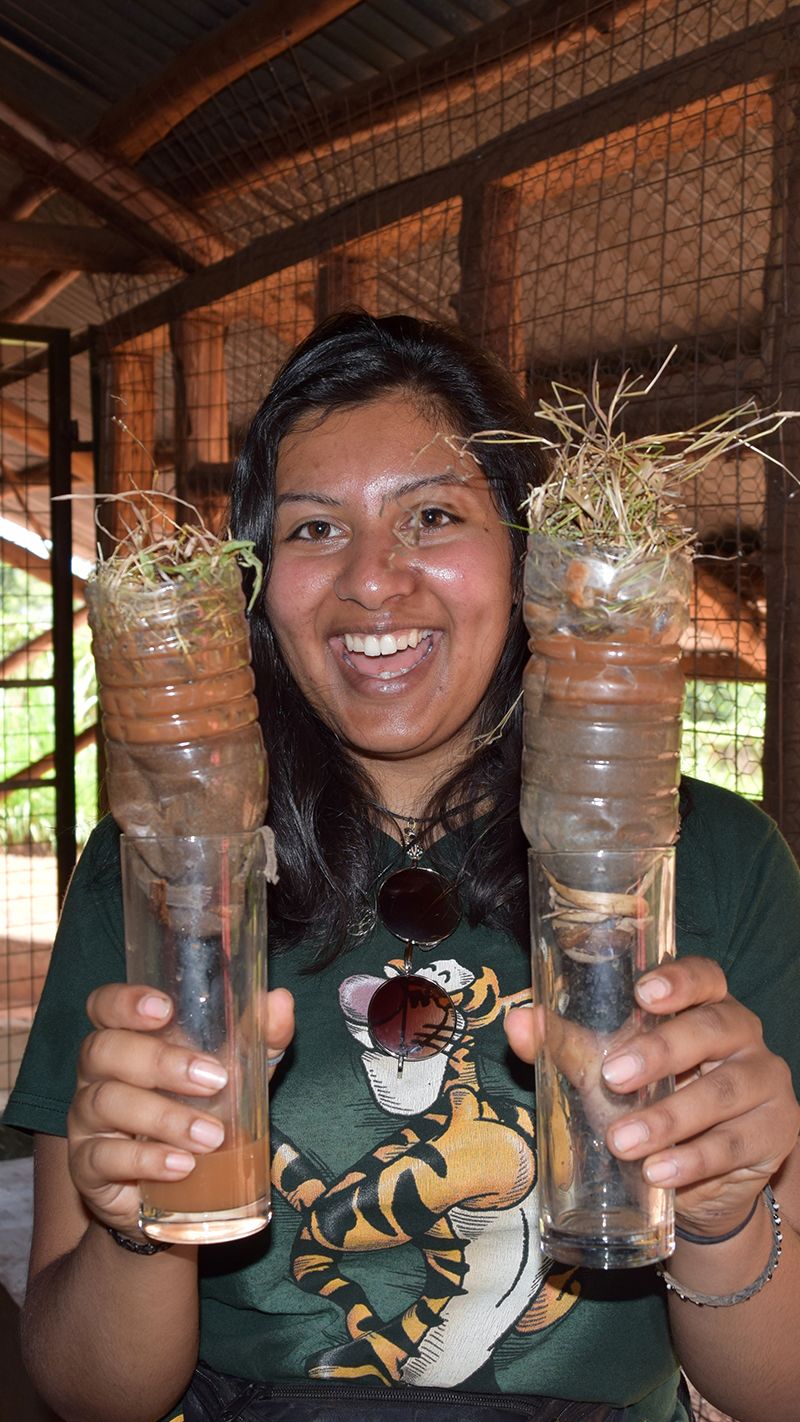
Planting activity
Planting activity
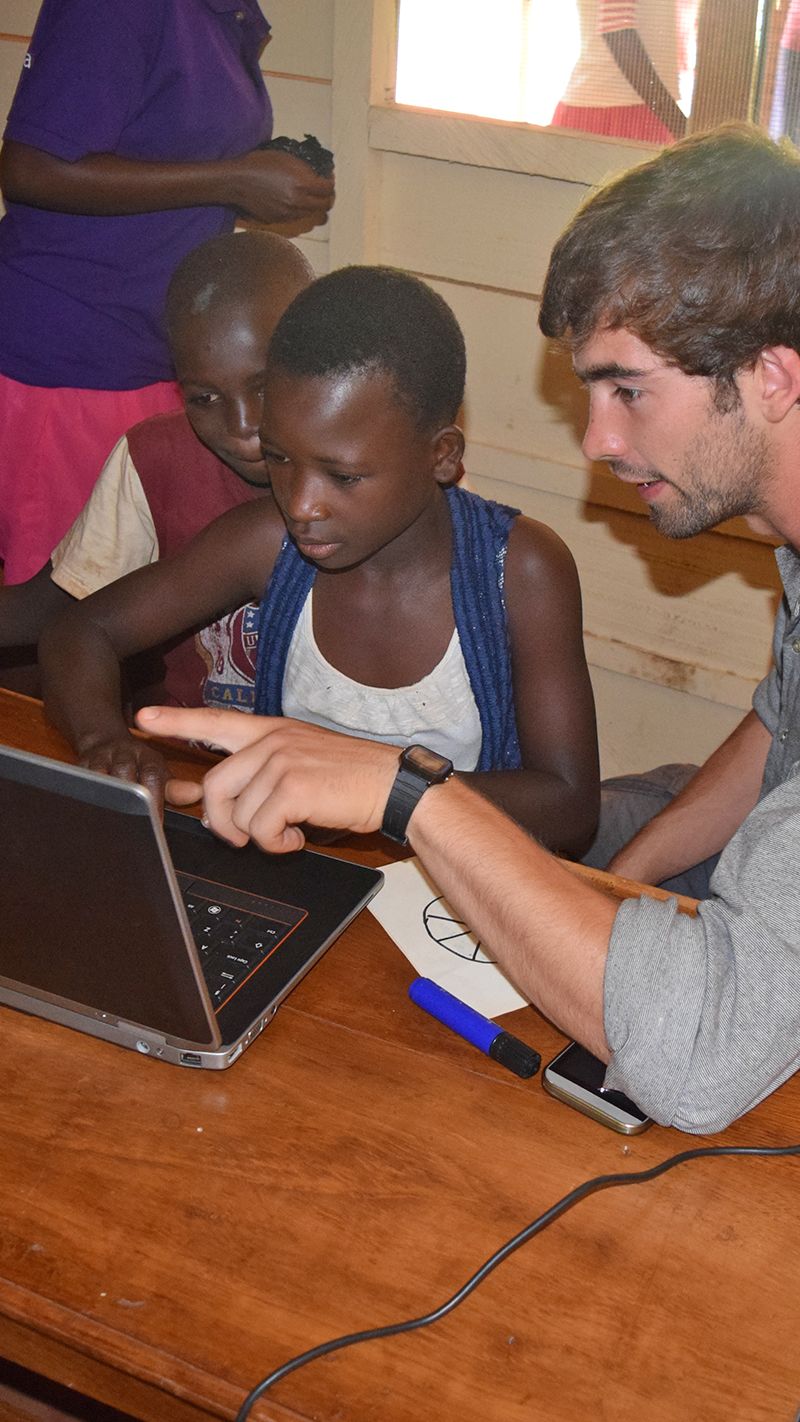
Computer lesson
Computer lesson

Each year at least one team undertook a community research project, in order to help support and strengthen the resettlement work at the heart of S.A.L.V.E.'s programmes.
Poverty Stoplight
The students carried out research on poverty levels and the needs of the communities where S.A.L.V.E. works using an adapted Paraguayan research technique, the Poverty Stoplight Tool. They undertook surveys and interviews with families and community members to assess their poverty levels and specific needs such as access to education, opportunities to earn an income, reliance on subsistence farming and access to healthcare. This helped S.A.L.V.E. identify the areas with the biggest risk factors for children to run away to the streets and develop their prevention and resettlement work. The volunteers also engaged with the communities to raise awareness of S.A.L.V.E. and the work they do.
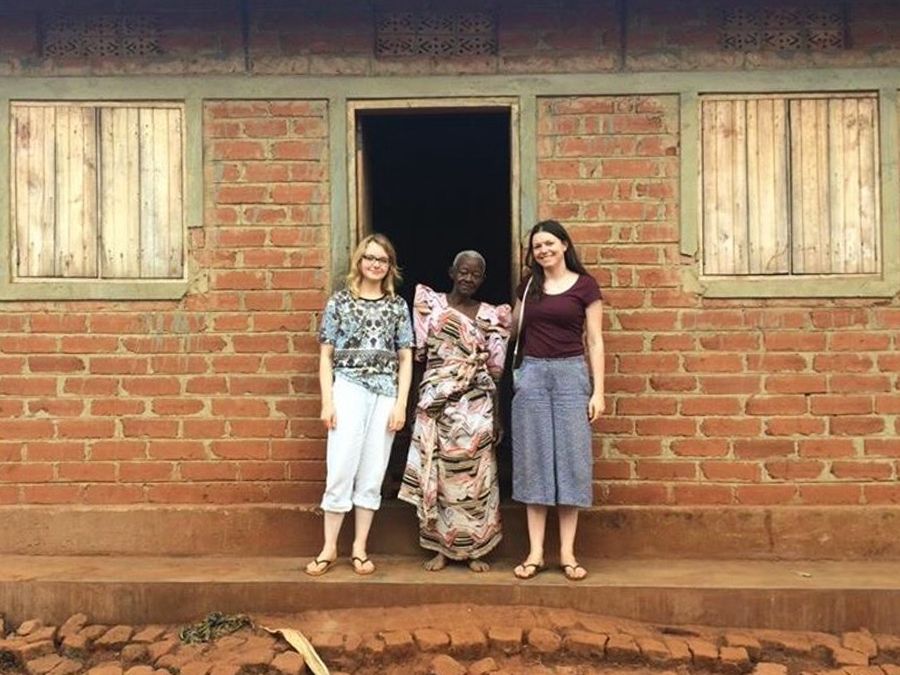
"This enabled us to look at what was most needed by the community and start looking at new projects to address those needs. We have also been able to provide this data to local leaders which has helped build our relationship with them. This project helped us to get to know the community in which we are based, and for the community to learn what we do and why our work is so important."
Community Mapping
The aim of this project was to research the local NGOs, schools, vocational training centres, and community organisations in and around Jinja, to identify potential referral options for S.A.L.V.E. The volunteers also created resources including online maps for S.A.L.V.E. staff to use when engaging children and young people back into education, helping them to overcome the various barriers they face to being resettled.
The teams also researched how the organisations relate with children on the streets and their understanding of the situation in Jinja, to help S.A.L.V.E. to plan future training and partnership work with like-minded organisations.
"One of the challenges we and many others in the local community face, is not knowing what services are available in the local areas that we could refer people in need to. S.A.L.V.E. offers specific services to children on the streets and their families, and it has been of great benefit to better understand the other options available to them in their local community that they could be referred to. "
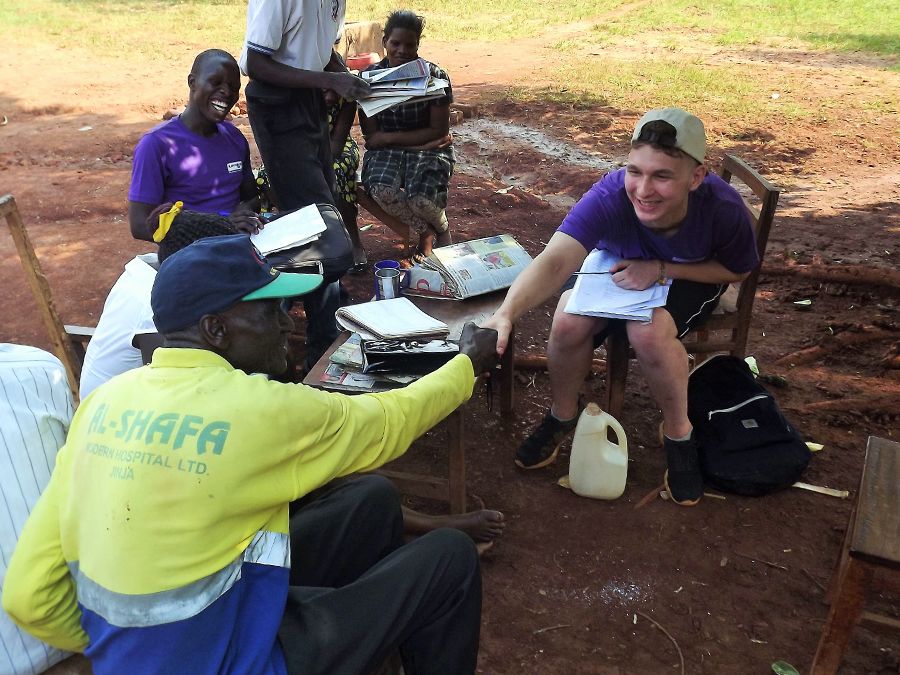
" The report and community event brought the community together and provided a platform for partnerships to be made amongst community members. As a result of our research, more schools and organisations became better aware of each other’s presence."
Community Advocacy
This team undertook research about the attitudes of the community and different organisations towards children living on the streets. They aimed to generate discussion about the reasons why children live on the streets and encourage community members to consider what they could do to prevent it from happening. This was achieved through questionnaires and interviews with community members and through a presentation day in the local community.
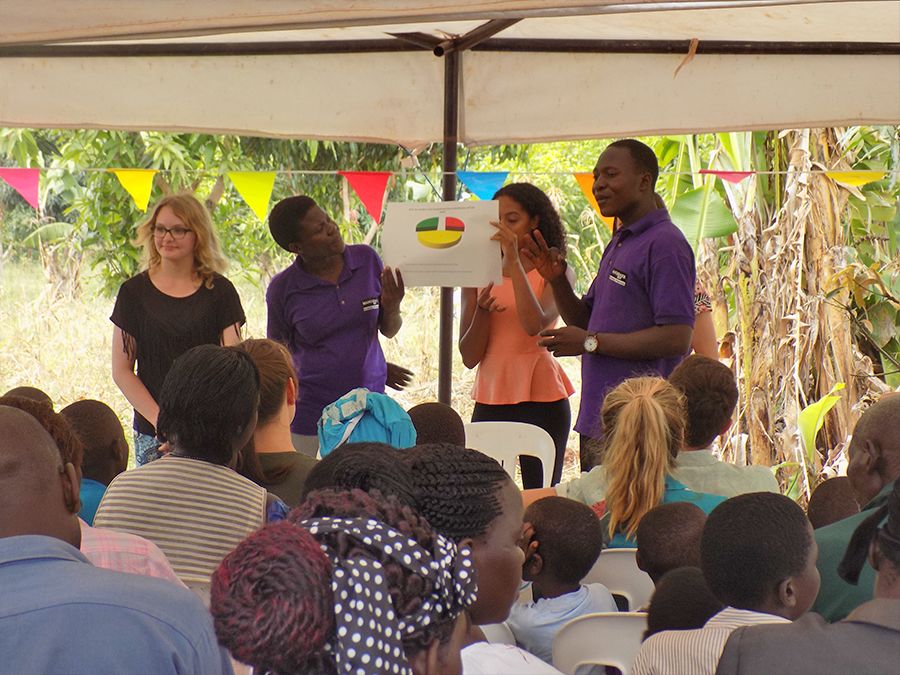
"More people, particularly in rural communities, are now aware of our work and understand the challenges children on the streets face. The teams’ efforts have encouraged conversation about children living on the streets, breaking down pre-conceptions and exploring potential solutions to the problems. "
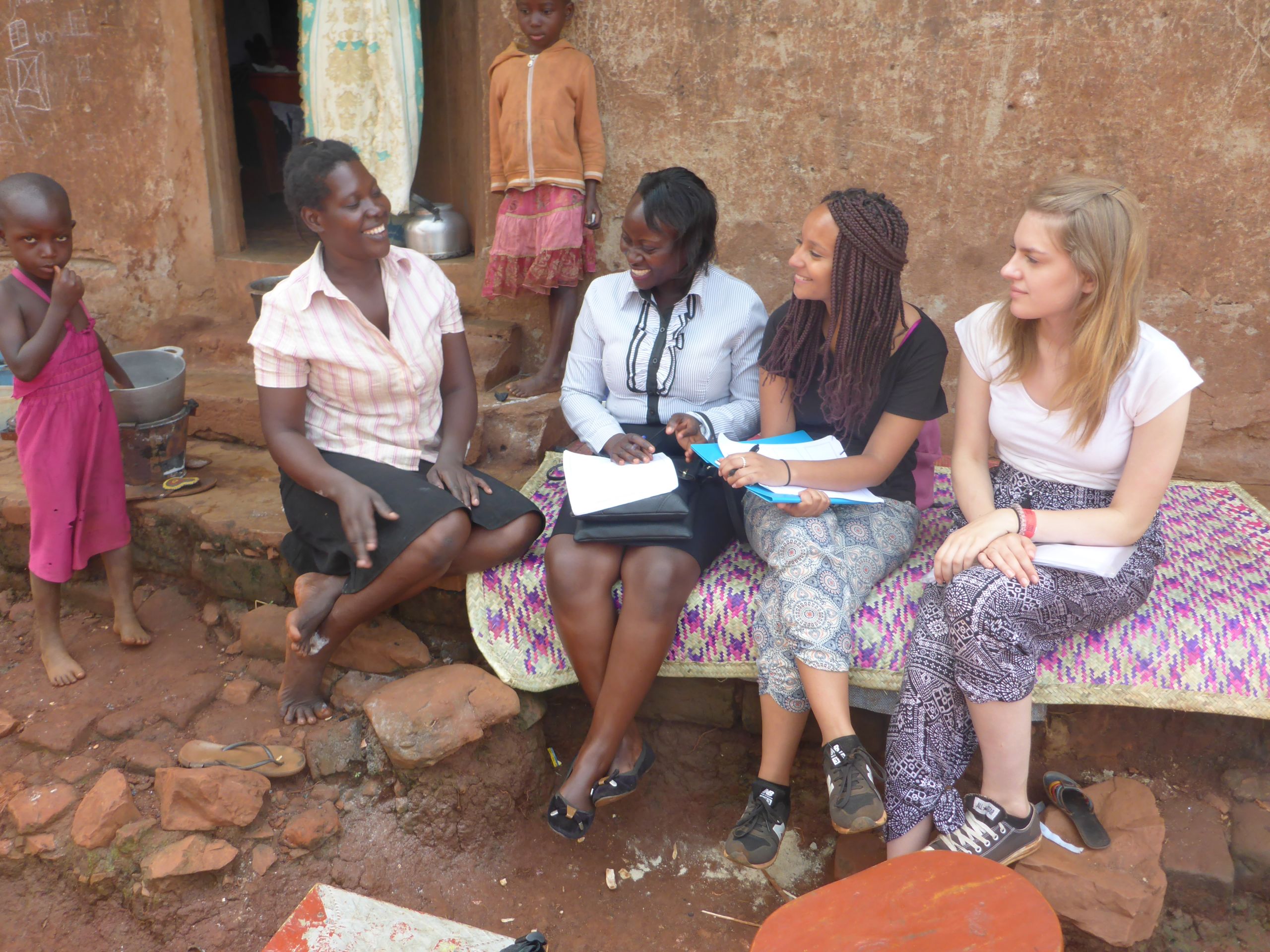
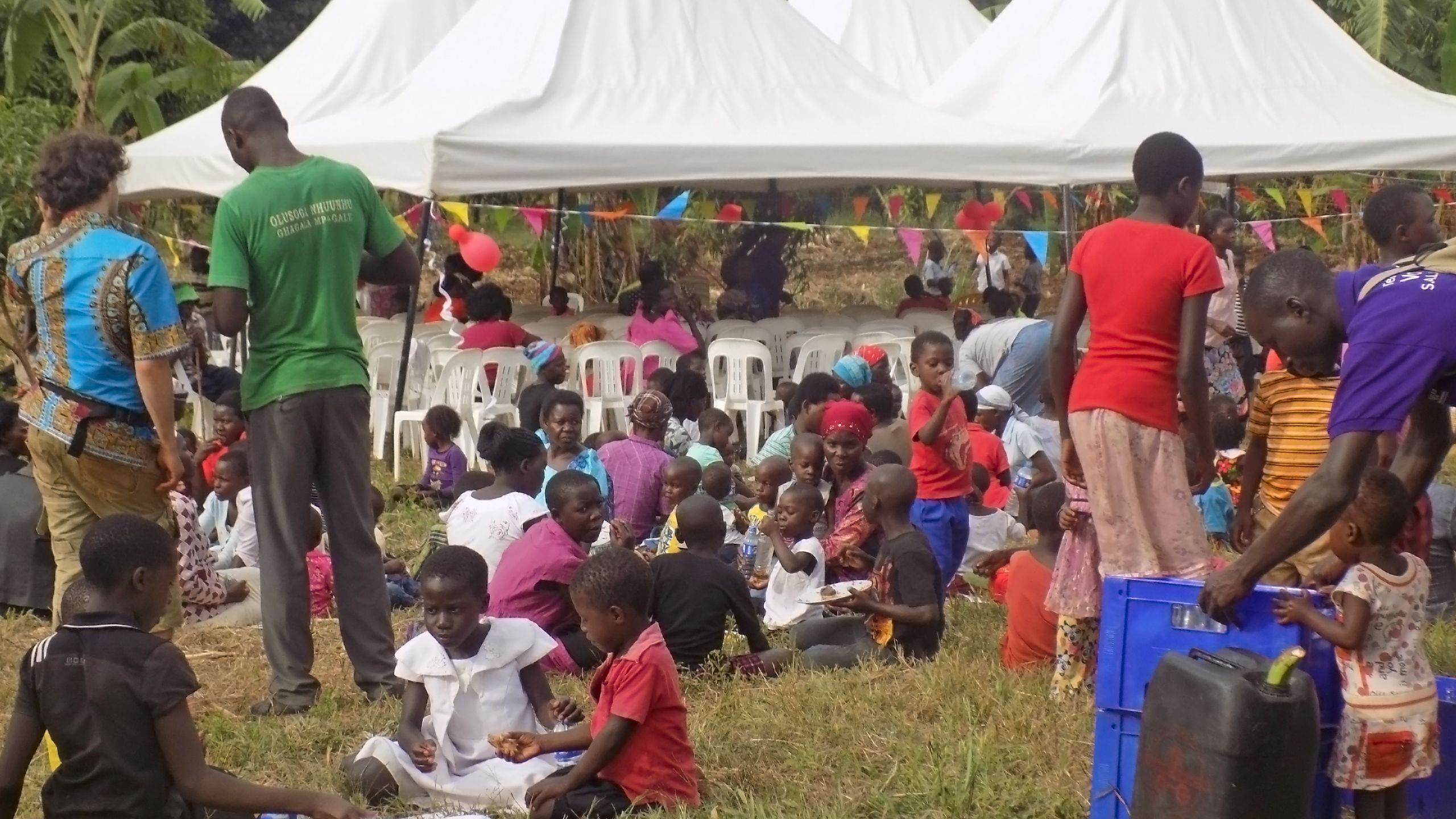
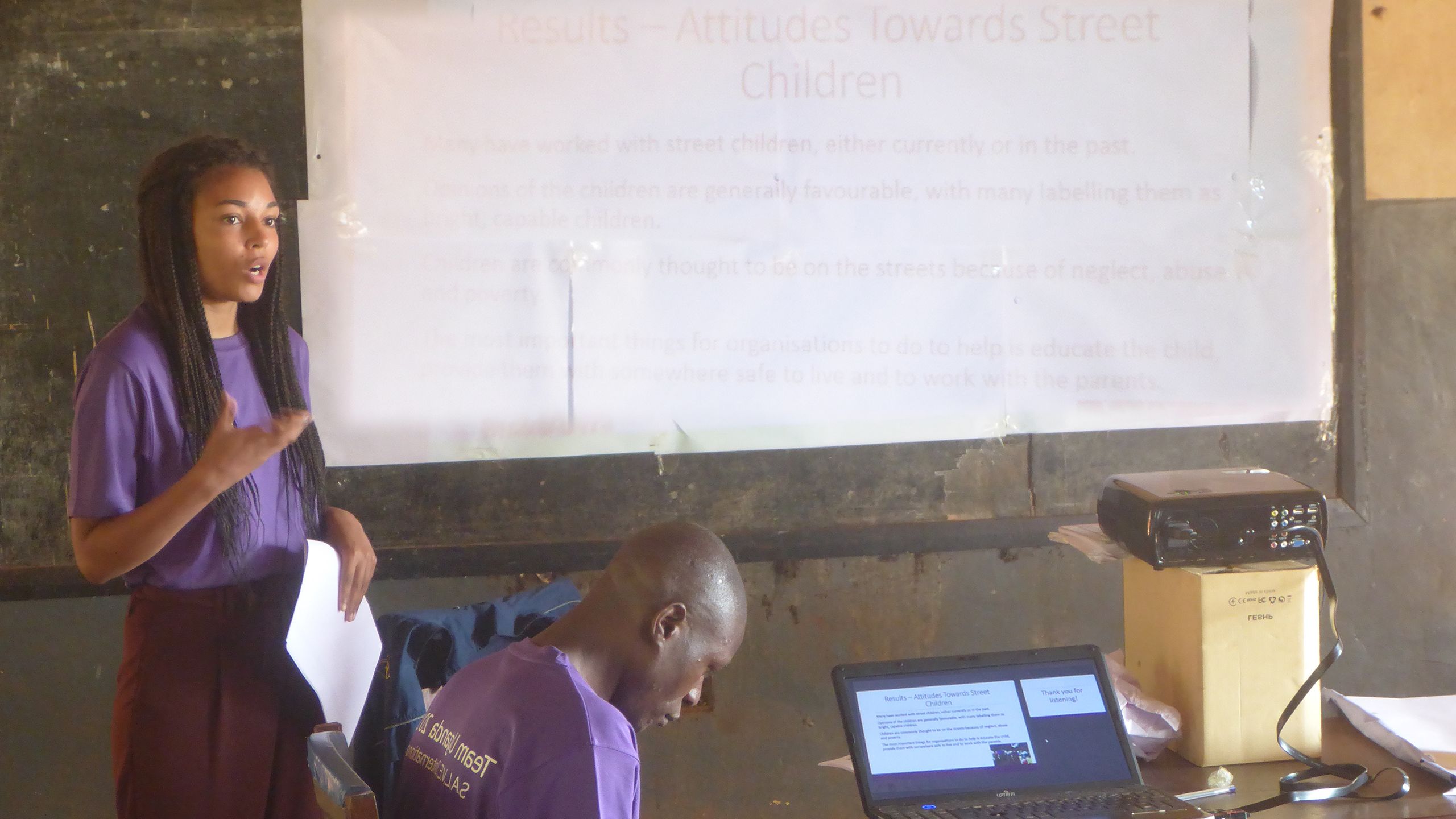

Students in the Social Enterprise sub teams explored the feasibility of sustainable income-generating projects for S.A.L.V.E. Their aim was to find an economically viable opportunity that would have a significant environmental and social impact. Across two years of the project the teams looked into sandal making, briquette production, bike rentals, mushroom growing, pancake making and bamboo growing, all opportunities that S.A.L.V.E. believed had some potential but simply hadn’t had the capacity to fully explore.
The teams built a picture of which projects may be sustainable through initial research in the UK. Once in-country they then undertook research in the markets and towns around Jinja and Kampala, speaking to vendors, existing businesses and manufacturers, testing prototypes, conducting focus groups and interviews with community members and scoping out potential business models.
Each team created business plans for their social enterprise based on their findings and outlining potential viability. They then pitched their research Dragons' Den style to S.A.L.V.E. staff and young people for one of them to be chosen as a way forward.
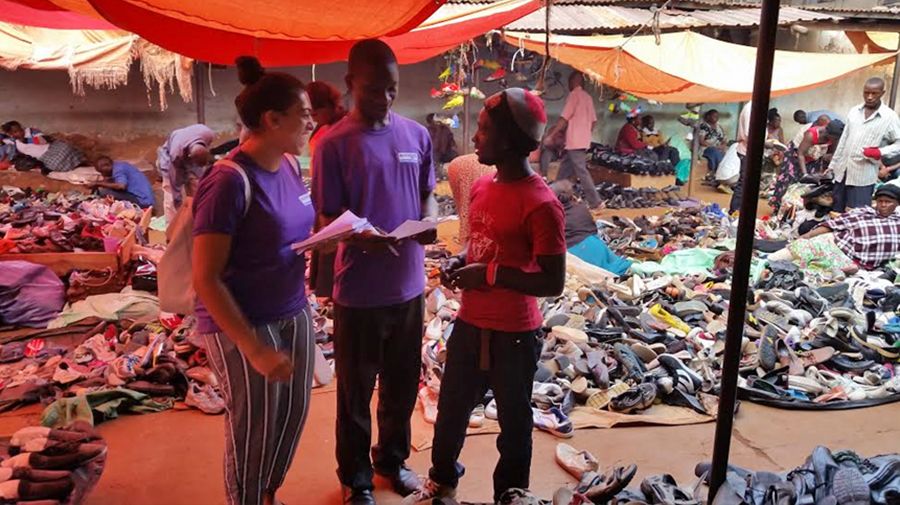
"The conclusion from the Sandals team was that it has the potential to be viable but that there is a huge amount of competition in Jinja so perhaps time and finances could be invested in a project which is likely to be more successful without taking business away from other community members/businesses."
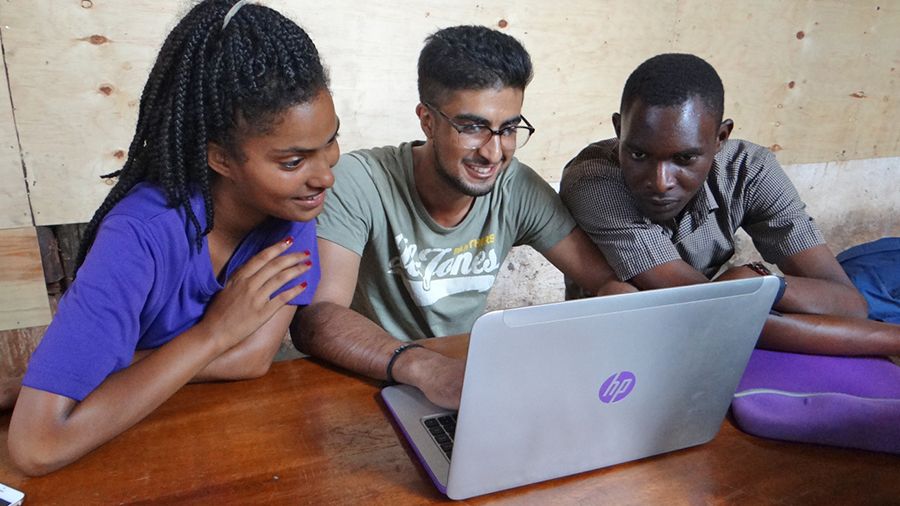
"It was clear from the research that the Bike business was not going to be viable. This conclusion is extremely important for S.A.L.V.E. as it was an option they were seriously considering as there was a ready-to-go opportunity for a large shipment of bikes to Uganda from another organisation. The team’s work has been vital in allowing S.A.L.V.E. to see the financial gains and losses over time."
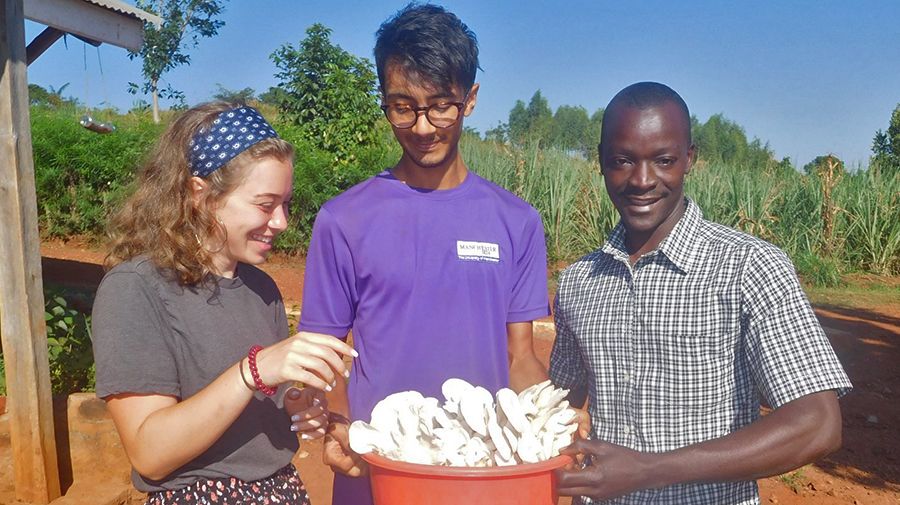
"The conclusion from the mushrooms team was that it’s a potentially viable project; fresh mushrooms are an increasing trend in the local area and demand is rising rapidly, particularly in restaurants and hotels. Our suggestions included growing mushrooms on the S.A.L.V.E. land providing employment to young people to tend to them."
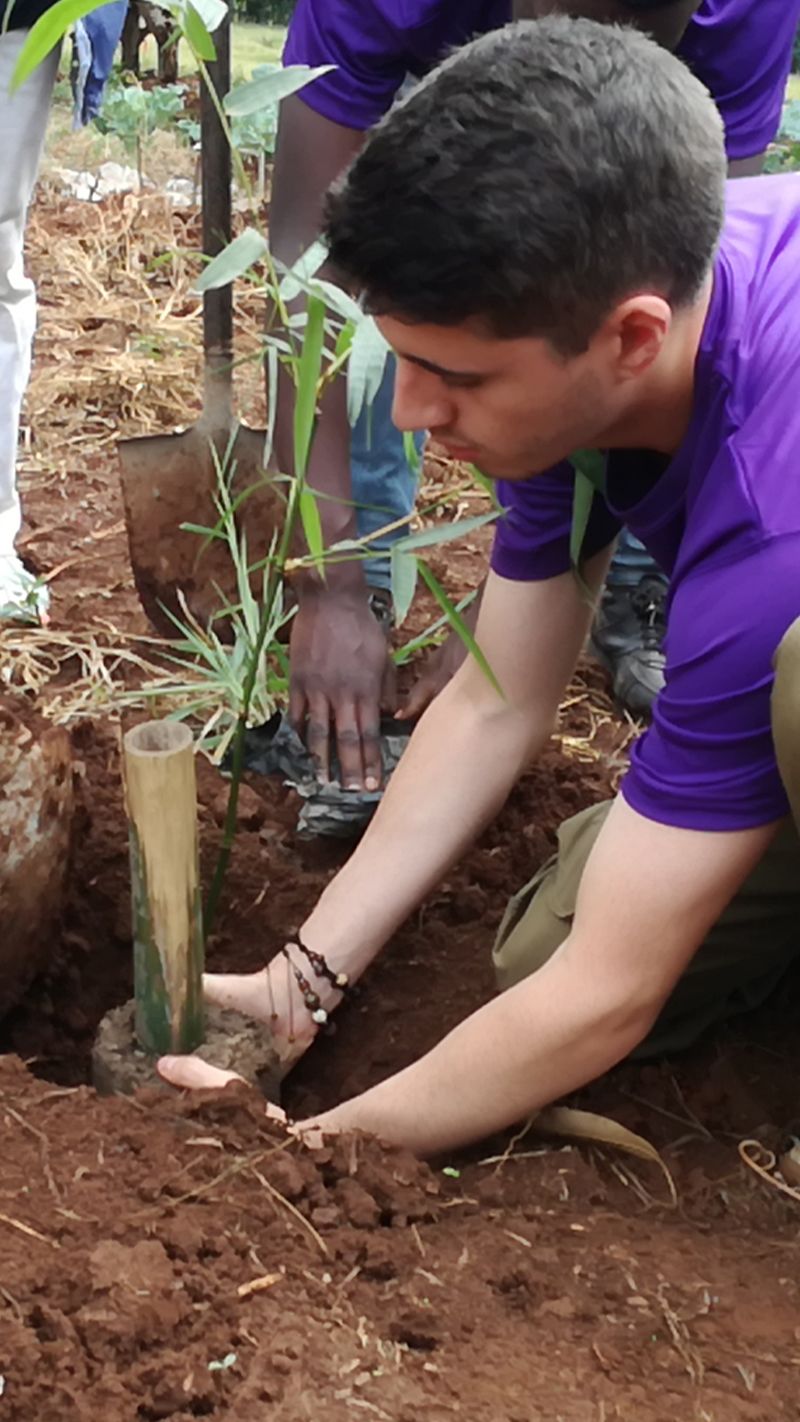
Planting bamboo
Planting bamboo
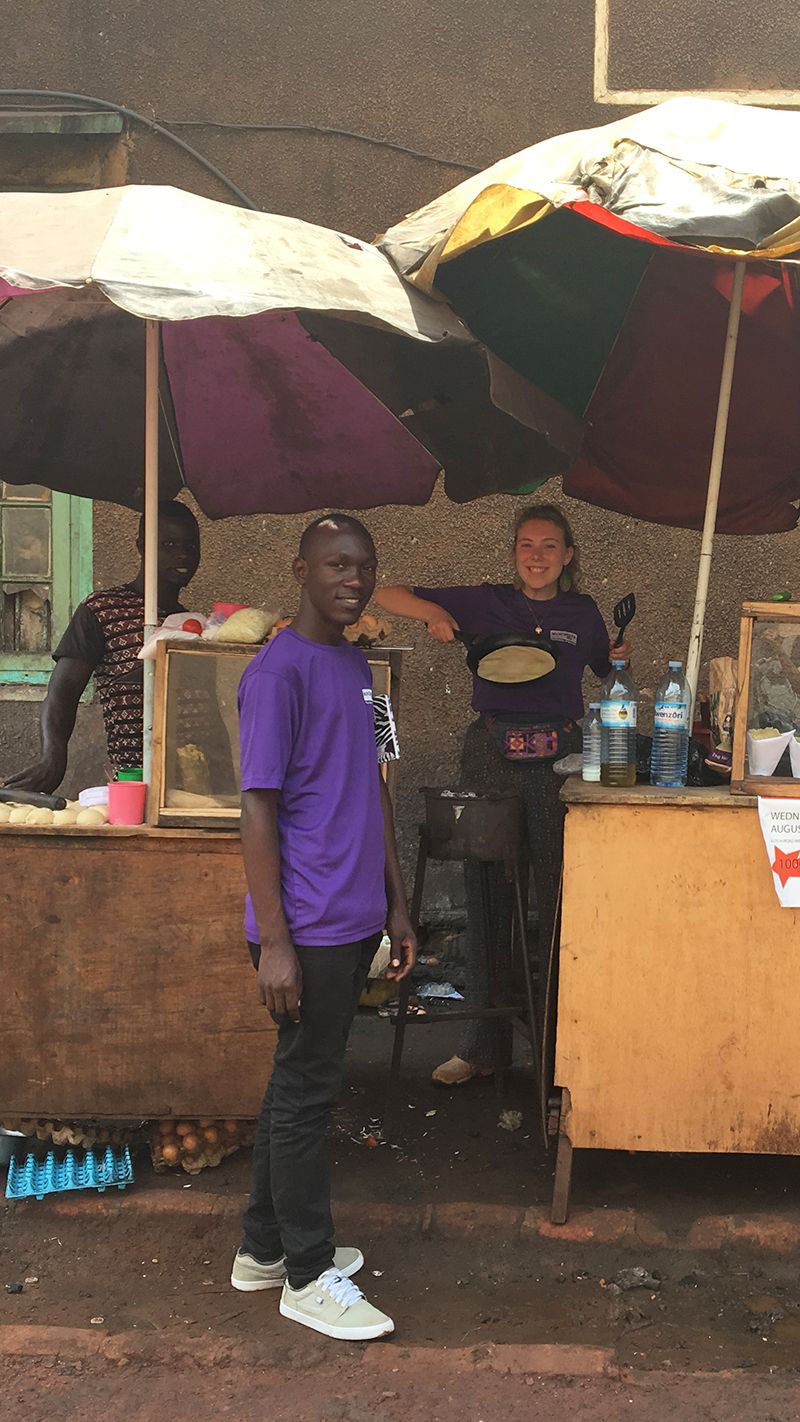
Testing out pancake stalls
Testing out pancake stalls
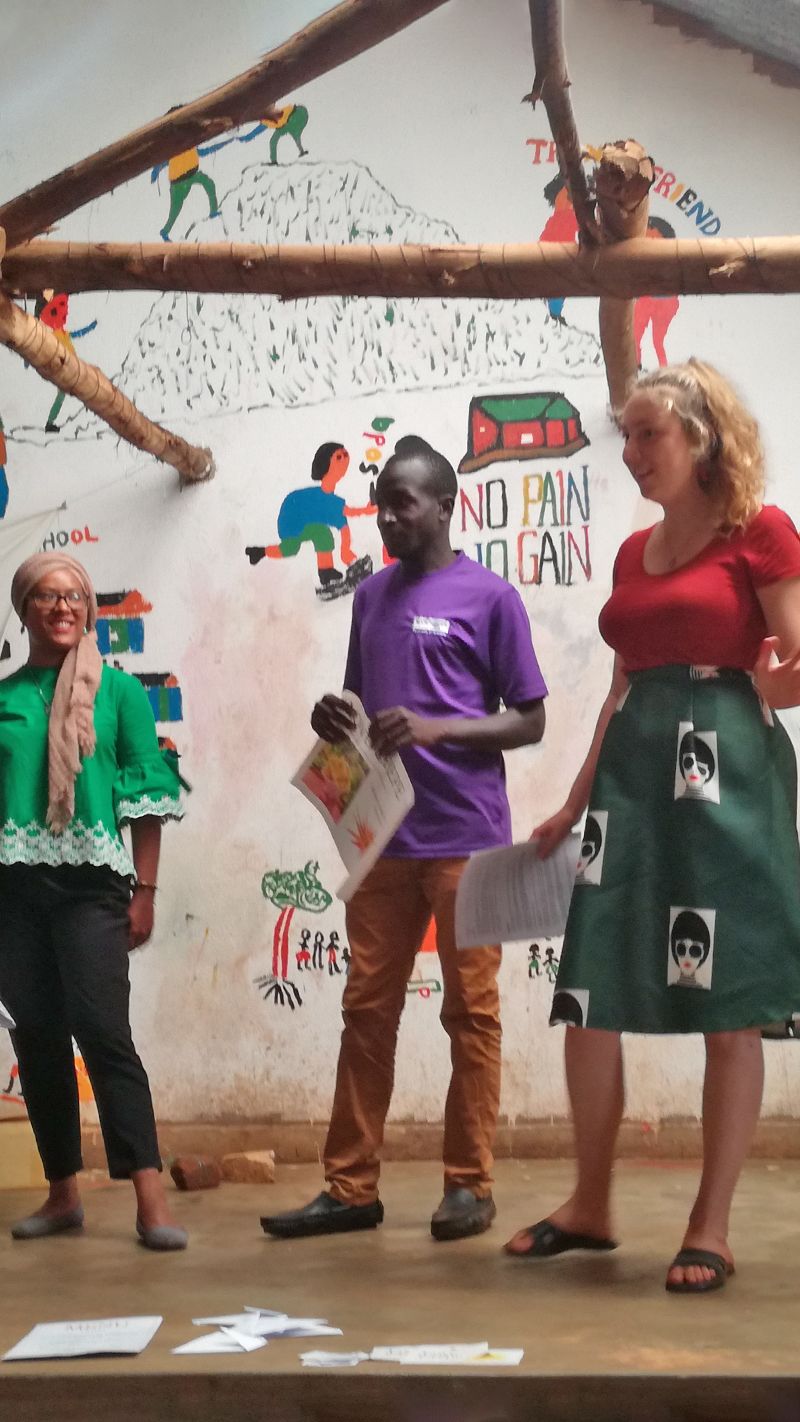
Presenting findings
Presenting findings

In the final year S.A.L.V.E. chose to focus the projects around the UN sustainable development goals (SDGs), the world's call to action on the most pressing global challenges.
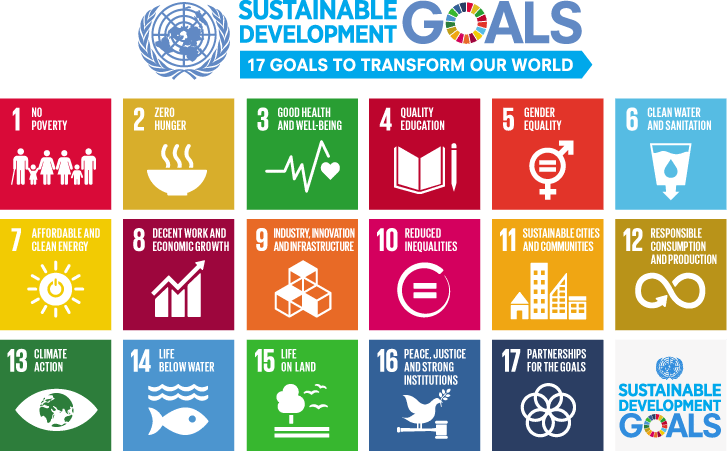
The teams worked in local communities on three key topic areas, identifying problems faced by children living on the streets and the community as a whole. They held community events for groups to come together to share their ideas and spent time with children living on the streets to hear their views on the topics. The aim was to come up with meaningful replicable actions around their topic area, which they developed, tested out and evaluated. They then made recommendations for S.A.L.V.E. and the communities to take forwards.
"A total of seven practical ideas were able to be trialled within the community; two climate ideas, two health and well-being ideas and three gender ideas. The communities were really appreciative of these actions and I believe the volunteers managed expectations well."
Alfred Ochaya, S.A.L.V.E. Director, talks about the projects
Alfred Ochaya, S.A.L.V.E. Director, talks about the projects
"The research results have helped S.A.L.V.E. to develop stronger community relationships within Masese, Mpmudde and Mafubira. For example we have been invited to four radio interviews to share the results (three for the girls project and one for the addiction project) and we have been highlighted on social media for our efforts in recycling in Mafubira, leading to a new partnership. "
The three projects tackled different areas of inequality highlighted by the SDGs and relating to S.A.L.V.E.’s work: Gender Equality, Climate Action and Health and Well-being.
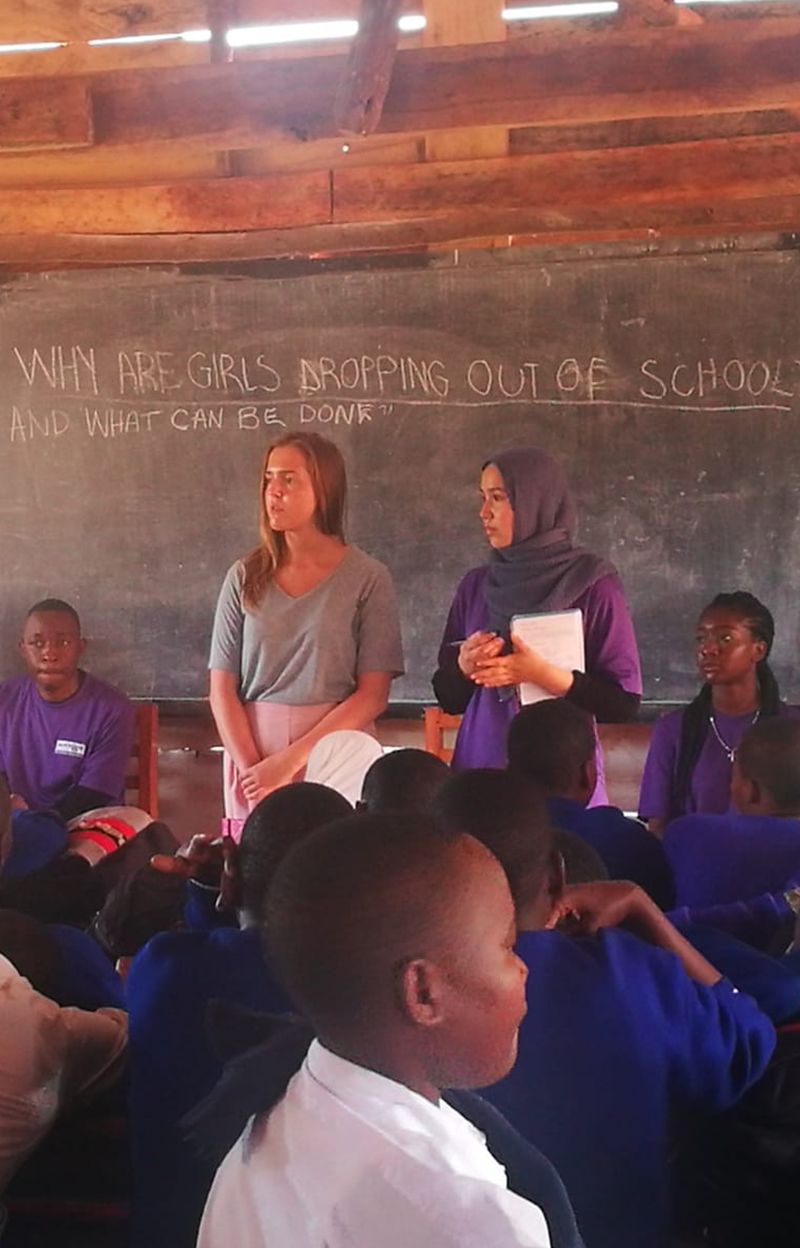
Girls education workshop
Girls education workshop
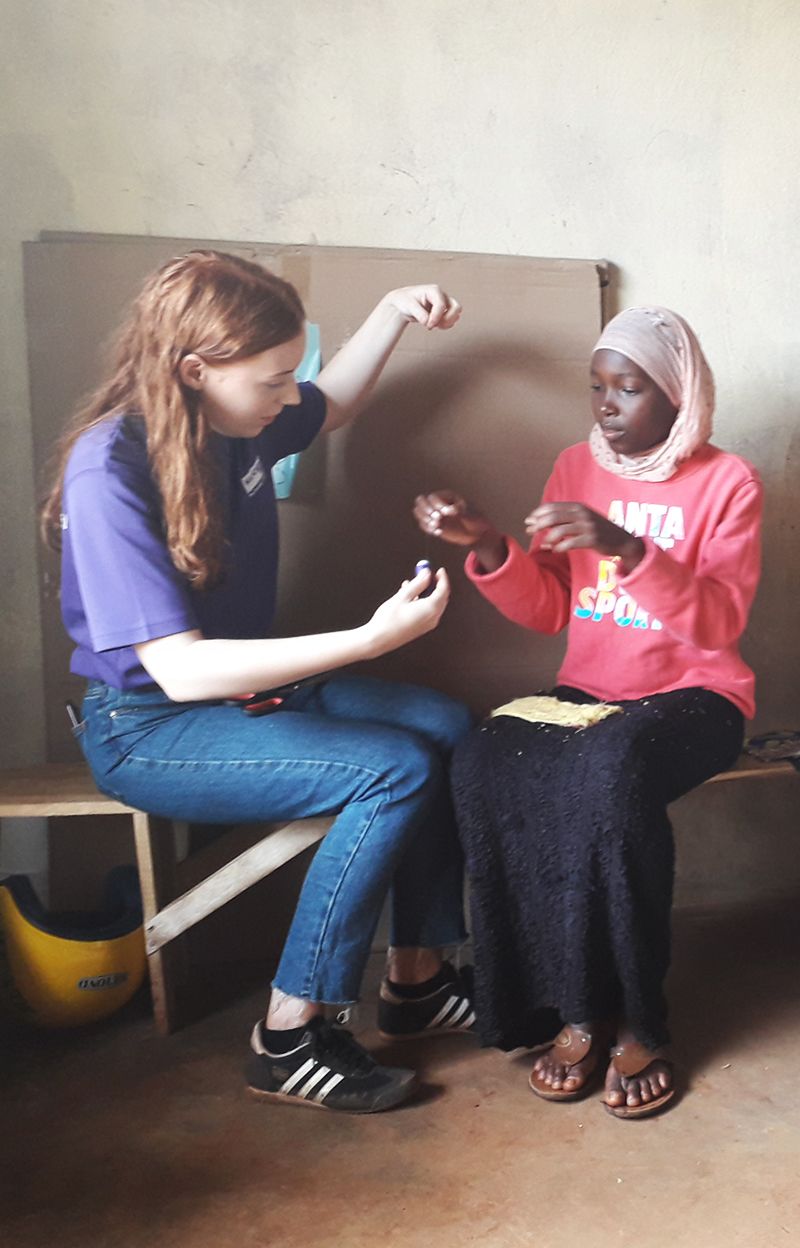
Sanitary pads workshop
Sanitary pads workshop
Gender Equality: Why are girls dropping out of school, and what can be done about it?
The Gender Equality teams spent lots of time in the S.A.L.V.E. Girls Drop in Centre in order to reach out to girls who are out of school. They discussed the issues girls faced, such as teen pregnancy, period poverty and early marriage.
Reusable sanitary pads workshop
Reusable sanitary pads workshop
One team interviewed institutions that had already begun tackling the issues, in particular period poverty. This led the team to develop a workshop showing girls how to create their own reusable sanitary pads whilst providing basic educational classes on the menstrual cycle. They also planned and delivered sexual health sessions and educational classes to develop literacy and numeracy skills, targeted at girls who had dropped out of school.
"This project has helped to spread the word about S.A.L.V.E. in the communities, increasing our relationships with the different local leaders. In addition to this S.A.L.V.E. recently got funding to continue some of the piloted ideas by the Uni project i.e. for sexual health classes and reusable pad workshops in the girls centre."
Another team chose to focus their efforts on piloting free basic education classes for girls after their research showed that lack of school fees was a major barrier to education for girls in particular.
Ashleigh talks about the gender project research
Ashleigh talks about the gender project research
"Through the gender team in Masese, we were able to build on our relationships with the community and the community leaders and increase the awareness of our new Girls Drop in Centre. This centre is new and now many girls and many community members are aware of it."
Ashleigh talks about the gender project activities
Ashleigh talks about the gender project activities
Climate Action: Why are we littering our community environment, and what can be done about this?
This team looked at how climate change is affecting communities and discussed ideas with the community members around what could be done to reduce the impact. After discussing areas such as permaculture, waste management and recycling they ran a community clean-up day and an environmental after-school club making jewellery from recycled materials. They also raised awareness of S.A.L.V.E.’s permaculture programme, the briquettes social enterprise and innovative recycling such as S.A.L.V.E.'s plastic bottle buildings.
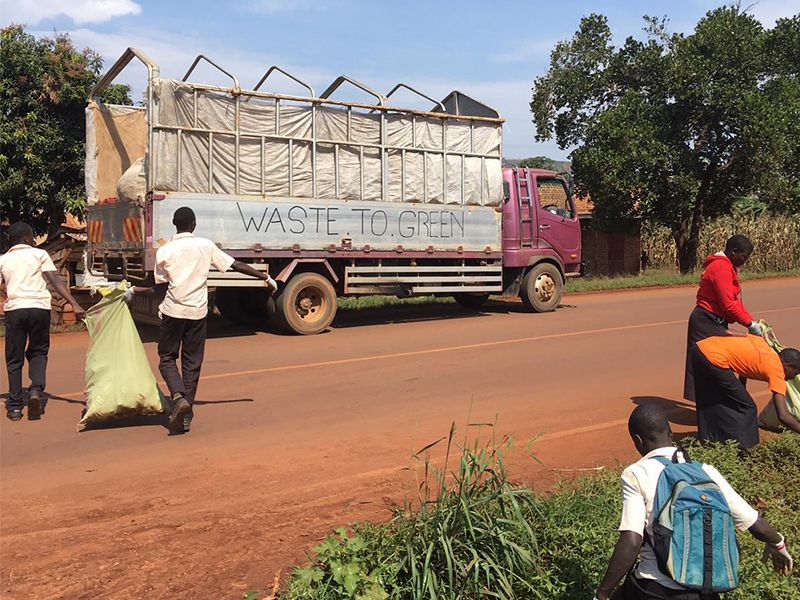
Community clean-up
Community clean-up
"The project I was involved in was the after-school club and community clean up. It resulted in being a much greater success than I had expected. Knowing that waste management is such a huge problem in Uganda, it was difficult to envisage a practical action that would have both an impact and be sustainable."
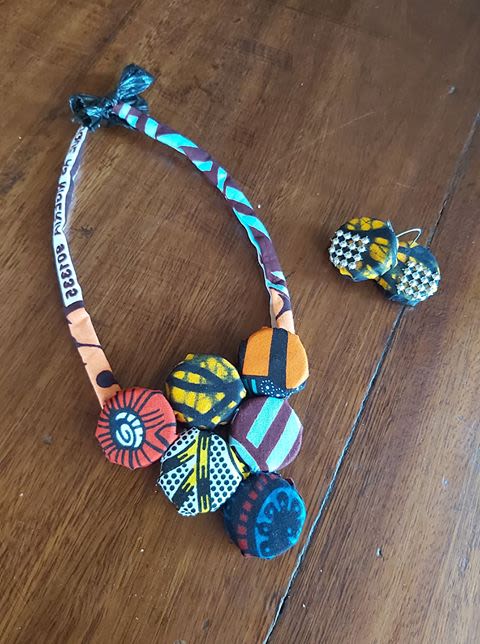
Jewellery made from recycled materials
Jewellery made from recycled materials
"This project was shared widely on social media by organisations new to us and those we at S.A.L.V.E. can potentially form some sort of relationship with in the future."
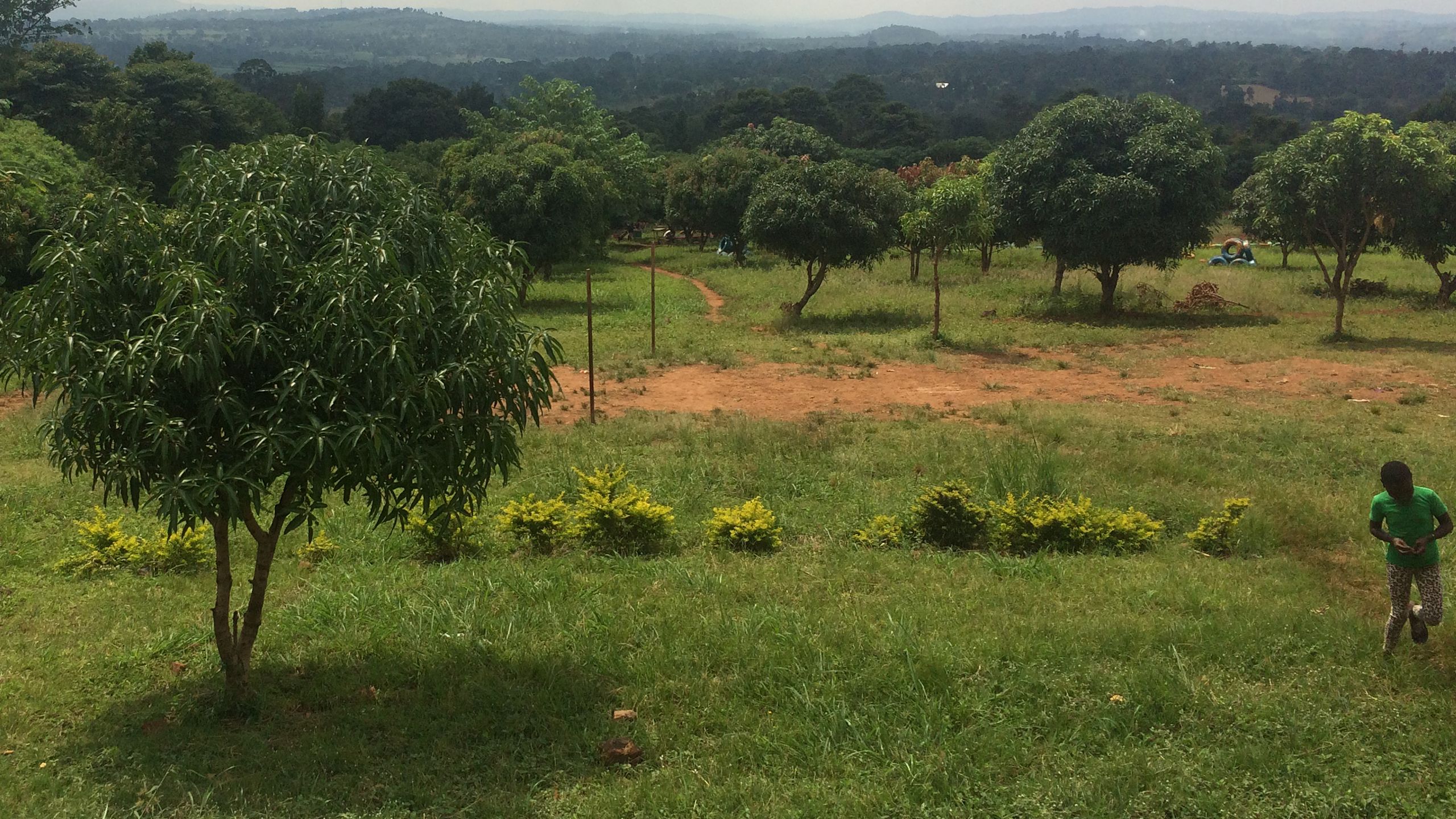
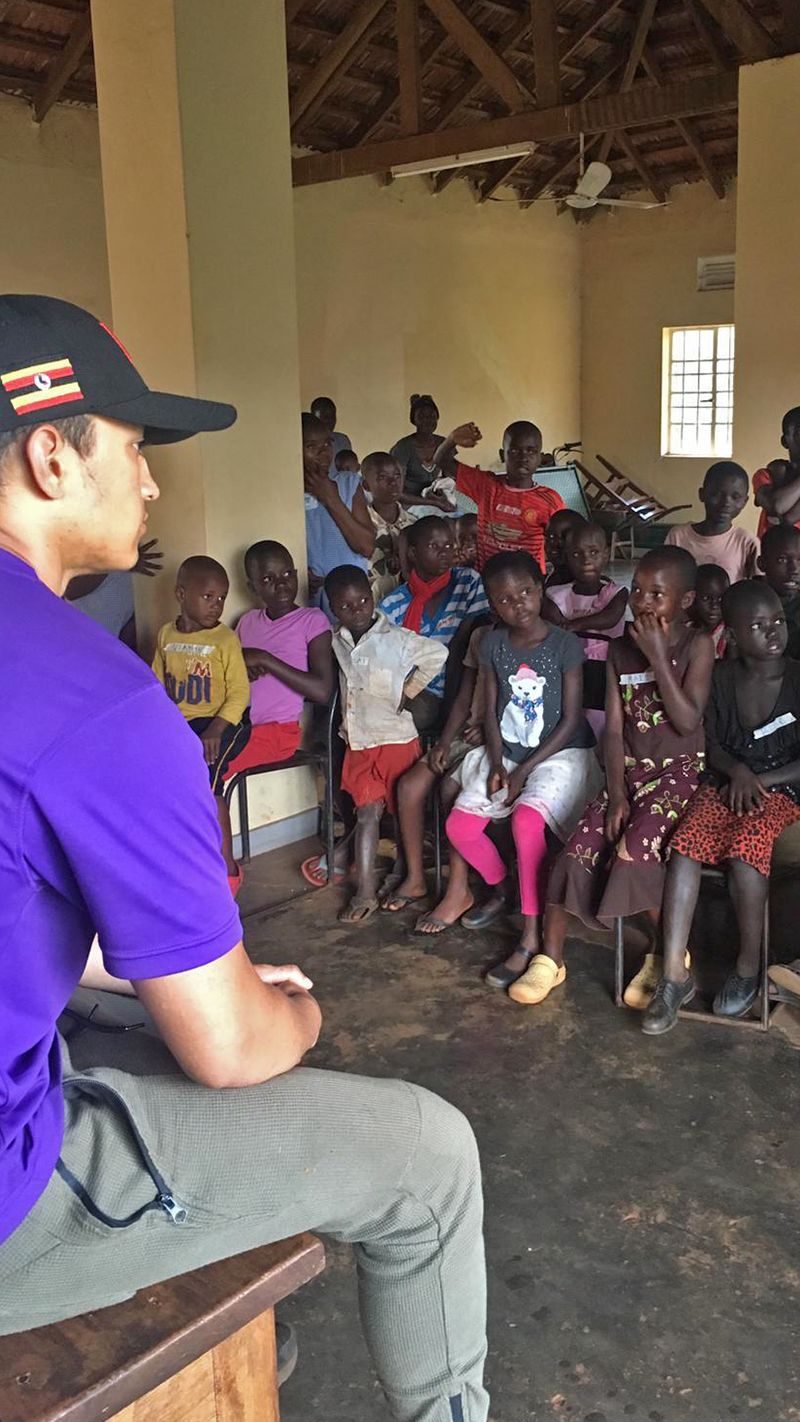
Delivering a session
Delivering a session
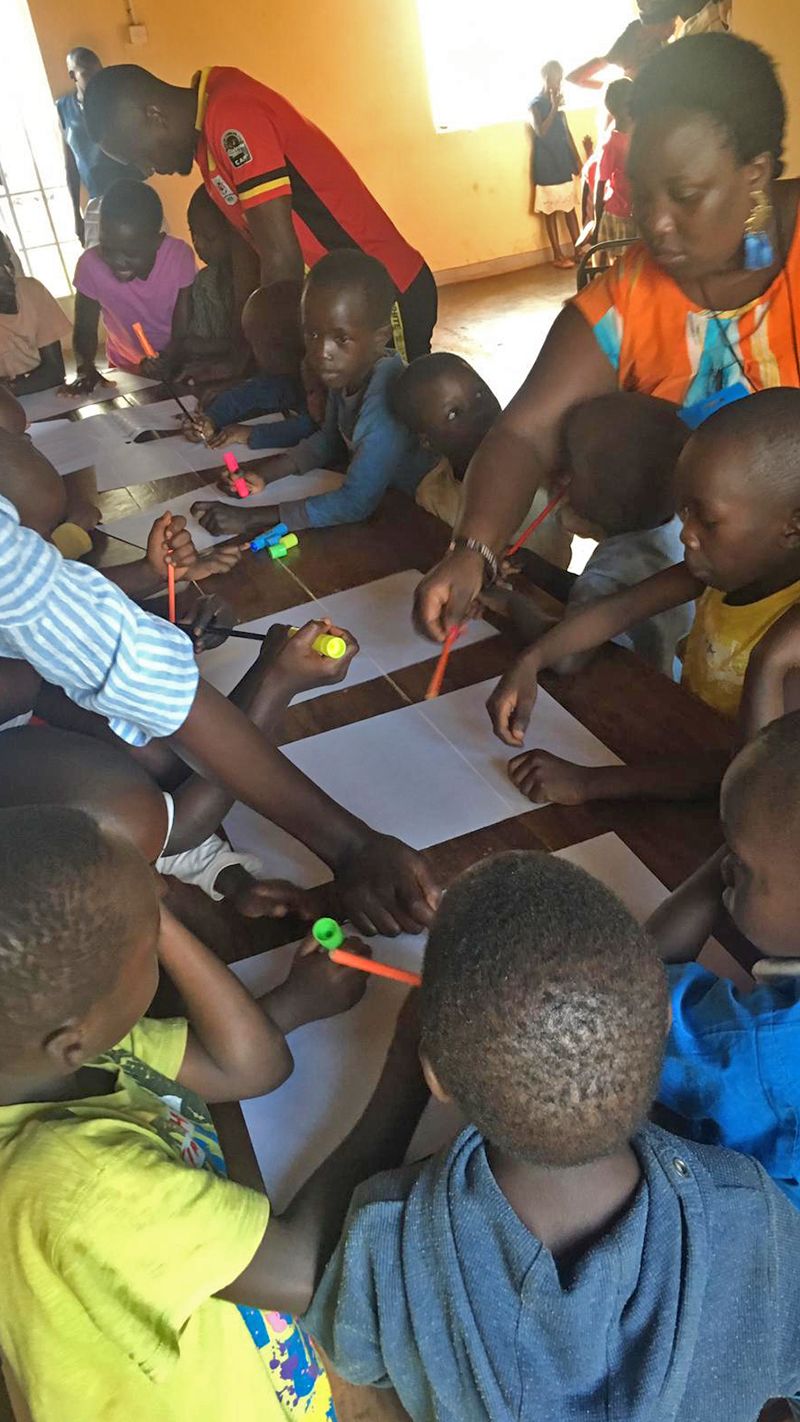
Drug awareness activity
Drug awareness activity
Health and Wellbeing: Why are young people taking drugs, and what can be done about this?
This team talked to the community about how it could work together to reduce the use of and harm caused by drugs, in order to create more discussion around the impact of addiction. Working with the S.A.L.V.E. Drug Rehab team, they visited schools and organisations and developed pilot awareness raising sessions, which they delivered to young people.
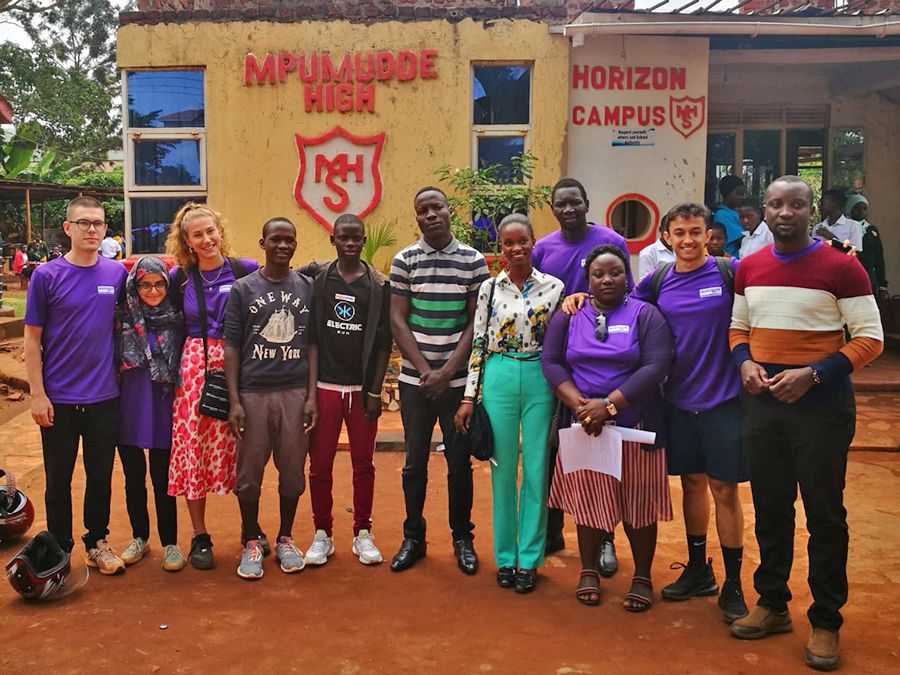
"This project has helped to inform our peer-to-peer addiction education programme where young people who formerly took drugs educate others about drug misuse. For example, we are now partnering with Mpumudde High School and were invited to share our work on the radio, where two children from the DRC spoke about the programme and how it has helped them in overcoming their addiction."
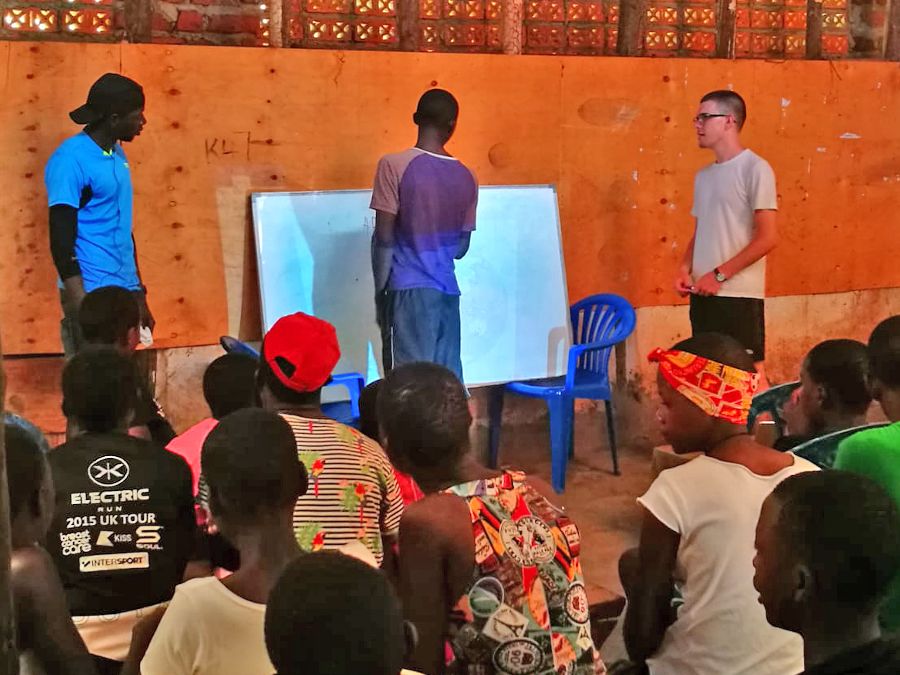
"A moment that stood out was when the children told us what they had learnt and that they were inspired to not take drugs as it would affect their future."
HOLIDAY CAMPS
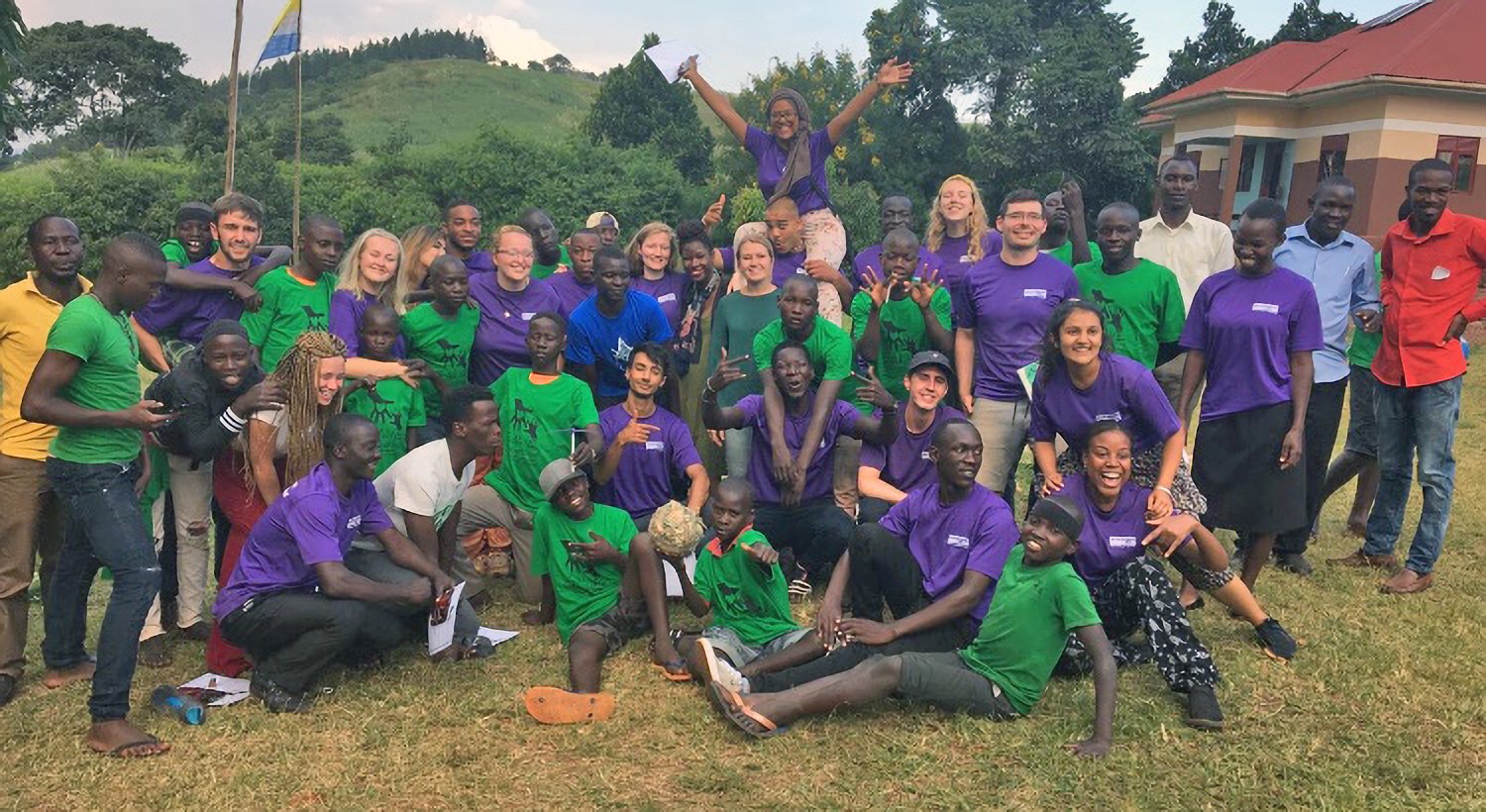
Each year all the volunteers jointly ran holiday camps for young people formerly living on the streets, plus some who had recently been resettled. The aim of each camp was to develop the young people’s knowledge, skills and talents whilst being a creative and enjoyable platform for learning. The holiday camps allowed S.A.L.V.E. staff to spend more time with the children and young people, in an environment where their confidence could grow and where they felt more comfortable discussing their needs and their future, thus contributing to the resettlement process.
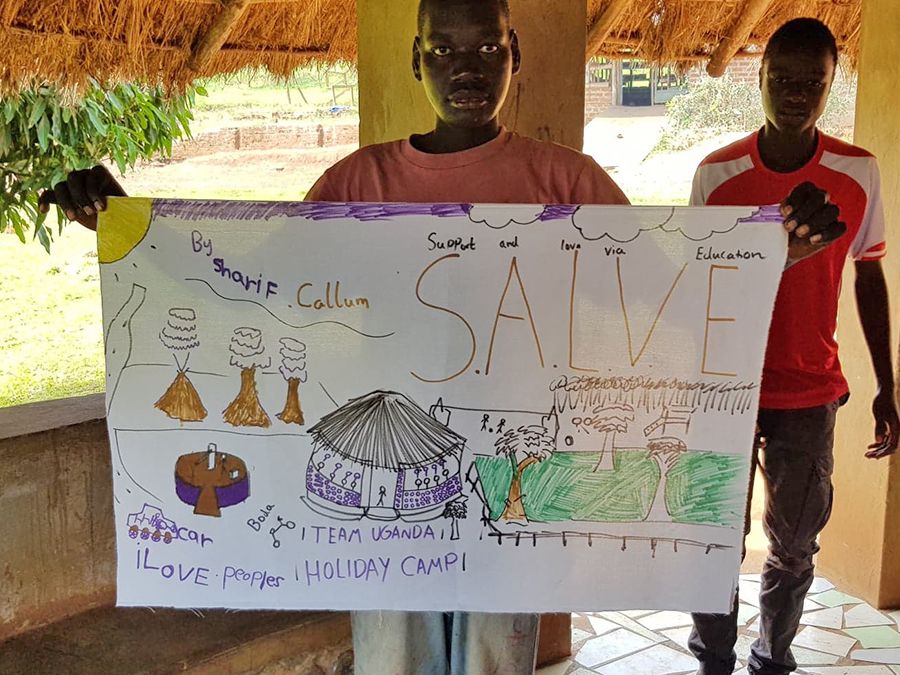
"The holiday camps allowed the children, all of whom are behind in their education after having been on the streets, to have some fun and learn new skills through the lessons run by the volunteers. It also gave us an opportunity to spend some more time with the children and identify any challenges they were facing at home as we are not usually able to bring them all together at once like this."
Paper aeroplane workshop
Paper aeroplane workshop
Amaani talks about how the holiday camps help the children
Amaani talks about how the holiday camps help the children
The holiday camps allowed the S.A.L.V.E. social workers to foster trust and build relationships with the children and young people, whilst the activities and interaction with others, often after prolonged periods of time living on the streets, helped to raise their aspirations for the future.
"Having the holiday camp kept the children entertained and interested with lots of new activities and people to meet."
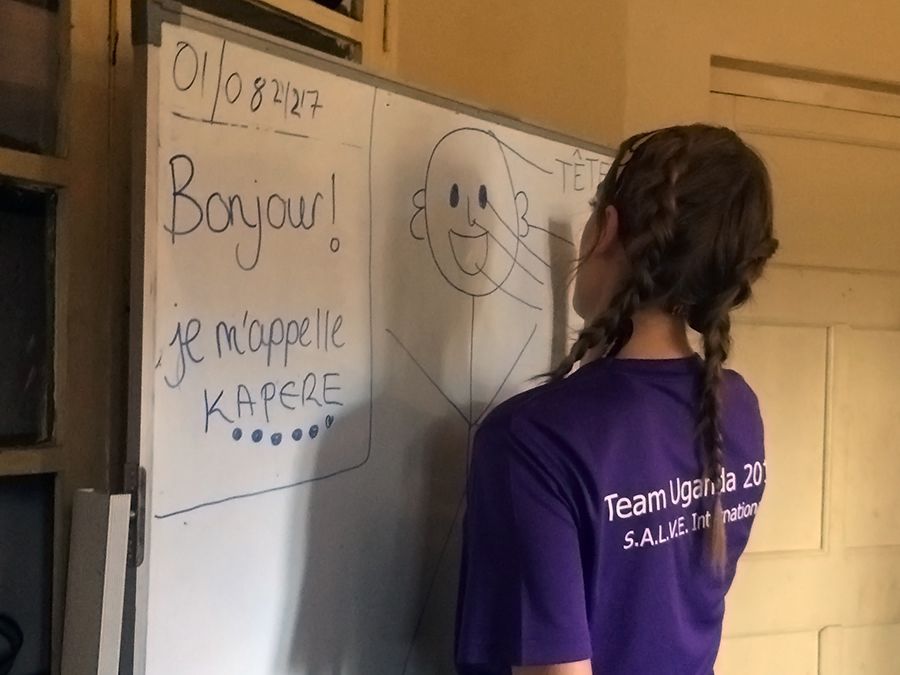
Languages workshop
Languages workshop
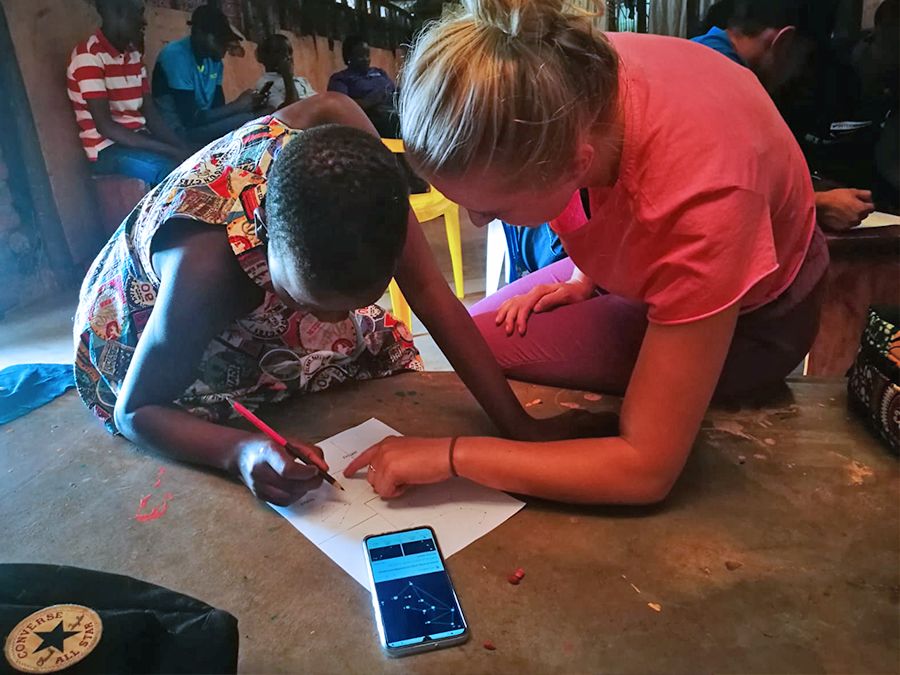
Science workshop
Science workshop
Solomon Otale, Resettlement Manager at S.A.L.V.E., talks about the holiday camps
Solomon Otale, Resettlement Manager at S.A.L.V.E., talks about the holiday camps
"Each year, of the children that attend during the process of resettlement, around half of the children attending the camps are resettled shortly afterwards, with up to two thirds being resettled in the longer term."
Sarah Agwang, Resettlement and Halfway Home Social Worker, talks about the resettlement process
Sarah Agwang, Resettlement and Halfway Home Social Worker, talks about the resettlement process
"Since the students have left we have had more children willing to take us to meet their families and committing to try to leave the streets for good than at this time in any year S.A.L.V.E. has been operating so far. The children who have been resettled home are now being followed up and will eventually enter into our educational sponsorship programme."
Dancing activity
Dancing activity
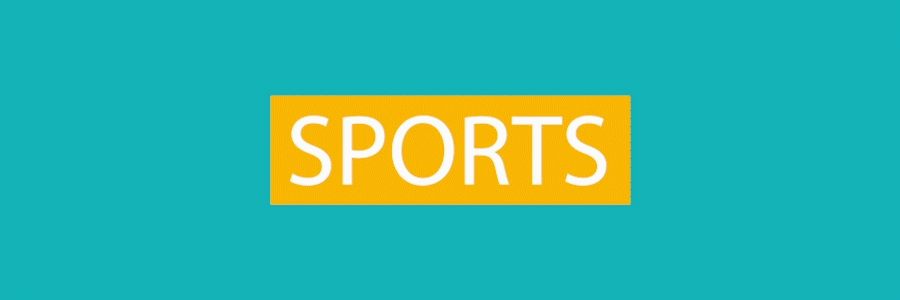
Holiday camp activities
Holiday camp activities
The volunteers planned diverse educational and creative activities tailored to the different ages and abilities of the group. Working closely with the Ugandan volunteers they created a safe space for the children and young people to play and learn.
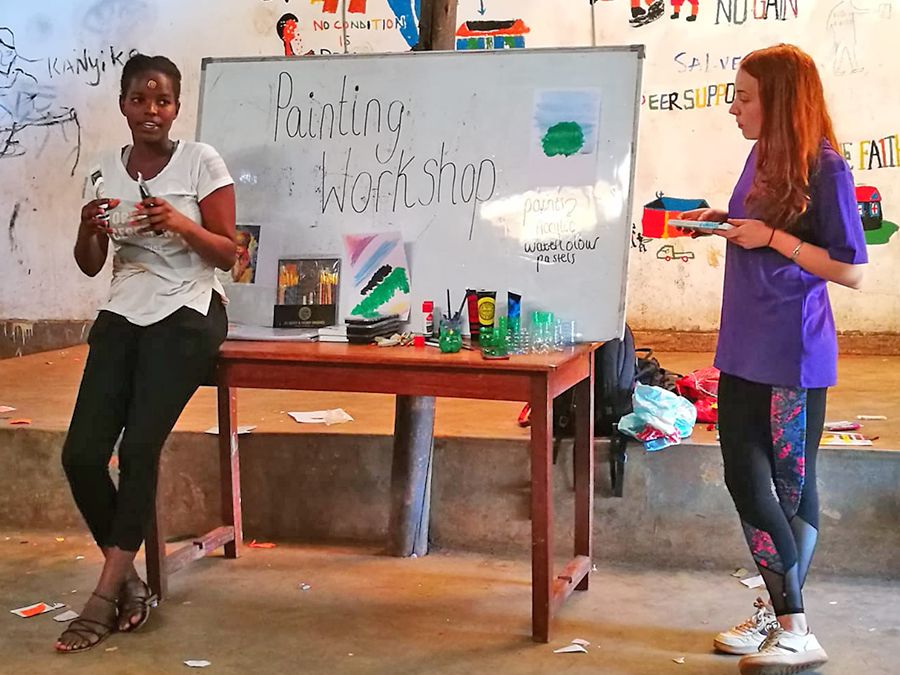
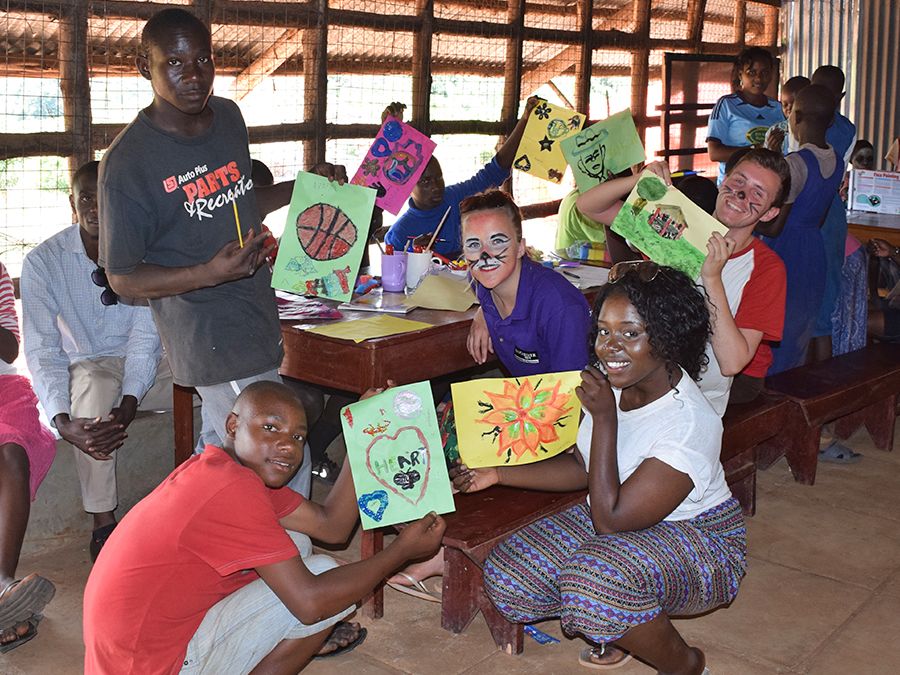
The children played sports and games, had educational lessons on English, maths and science, made crafts, danced, and attended a bonfire and a barbeque. The camps gave the children the opportunity to experience other cultures, develop key skills, form new friendships and grow in resilience and confidence, all part of the preparation for resettlement back home.
Music workshop
Music workshop
Grace talks about the benefits to local children of attending the Holiday Camp
Grace talks about the benefits to local children of attending the Holiday Camp
FUNDRAISING
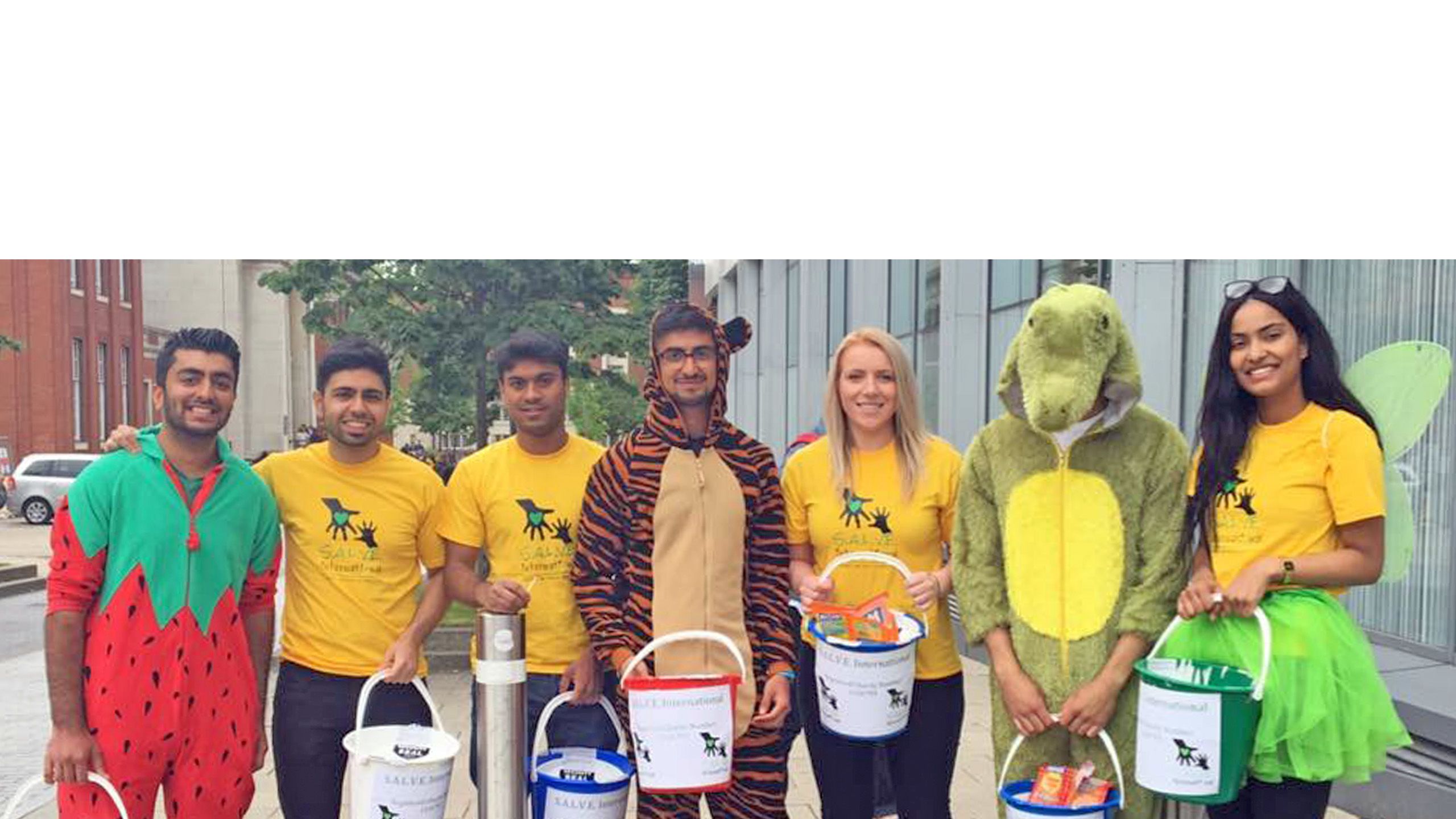
Each year the team raised £7000 towards S.A.L.V.E. projects by undertaking creative individual and joint fundraising activities. This allowed them to promote the project and raise awareness of S.A.L.V.E., whilst raising vital funds to support their work.
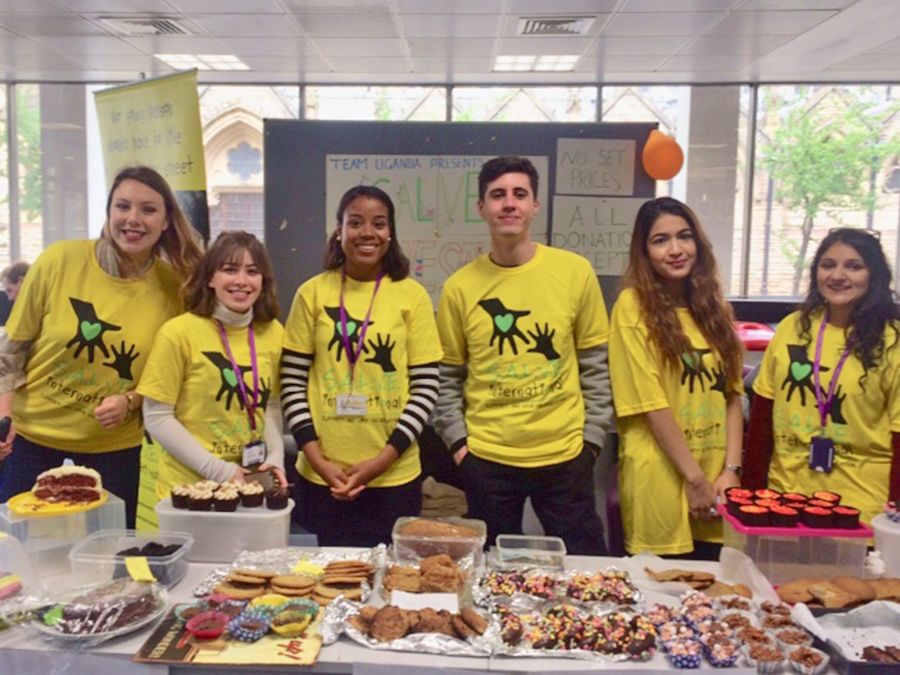
Students fundraising
Students fundraising
Each summer the funds were used to develop S.A.L.V.E.'s buildings and work, including building two environmentally friendly plastic bottle classrooms, paving the road up to the S.A.L.V.E. land for easier access, renovating a hall space for activities, installing solar panels for electricity at the halfway home, and resettling children.
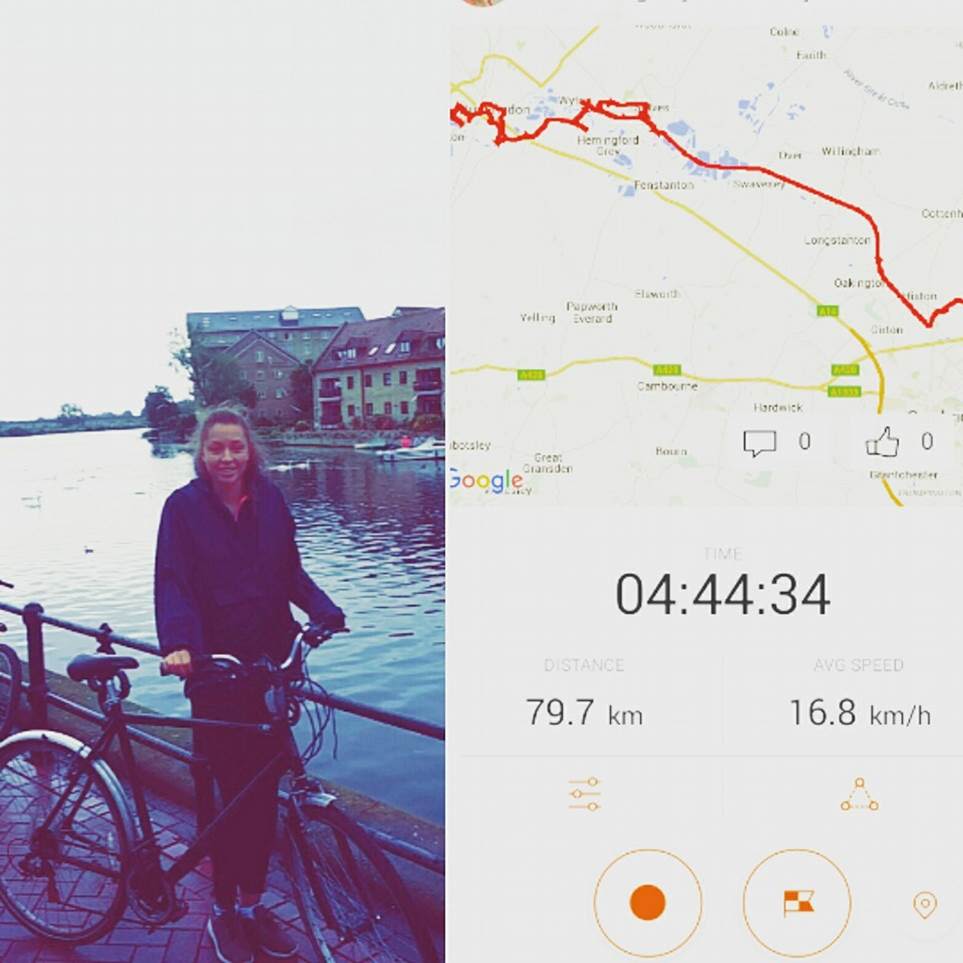
Lucia on a bike ride to raise money
Lucia on a bike ride to raise money
Plastic bottle classroom
The aim was to build a classroom from locally sourced materials (plastic bottles and sand) that would allow for counselling sessions with the children.
"It was good as it employed local tradespeople to do the tasks that we didn’t have the skills to do and it created a beautifully unique building that gives identity to the land."
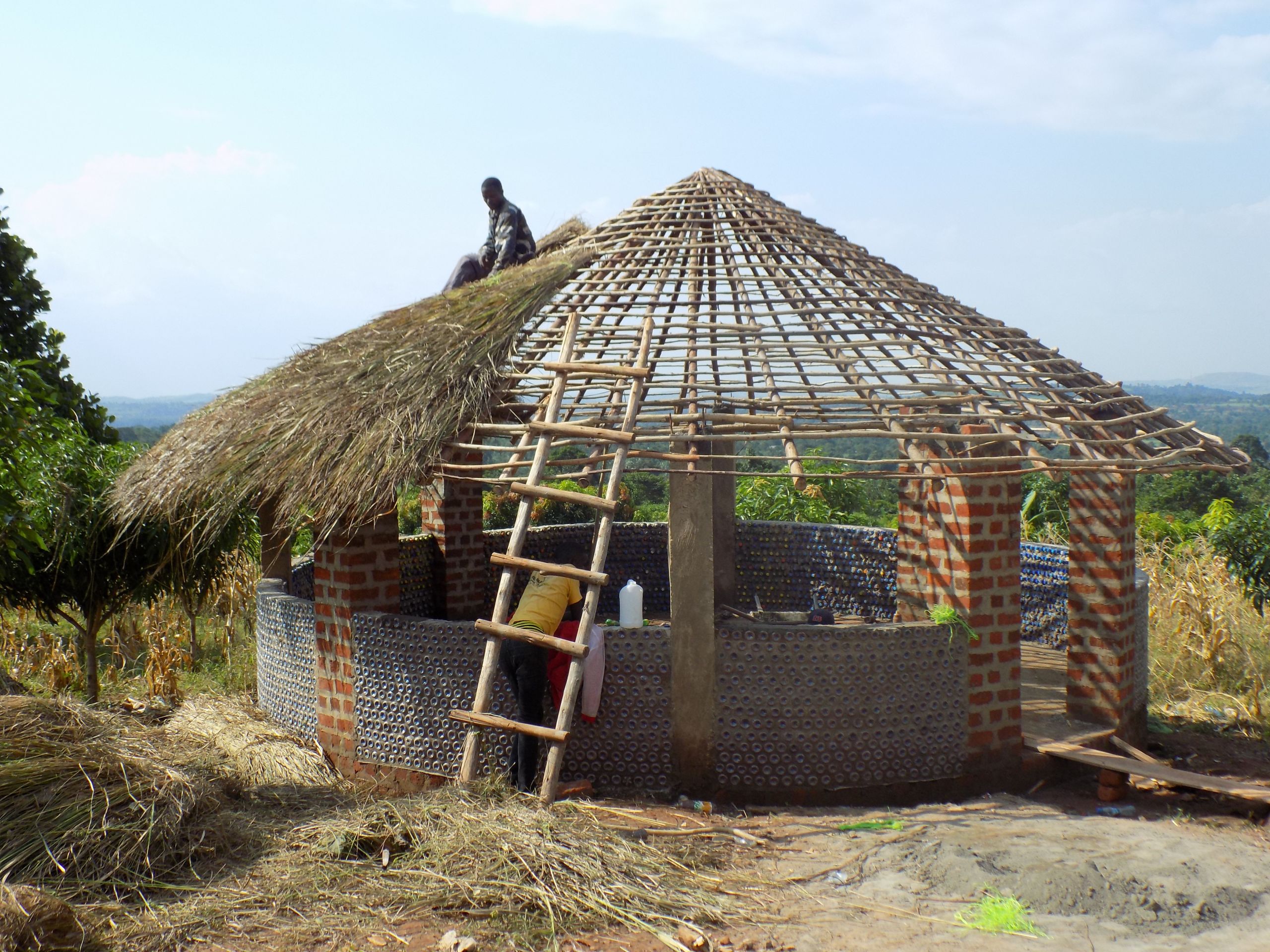
The building in progress
The building in progress
"Also it will broaden what they’re able to do out there as in rainy season, it becomes difficult to use the tin roofed chicken shed because the rain is so heavy it drowns out talking."
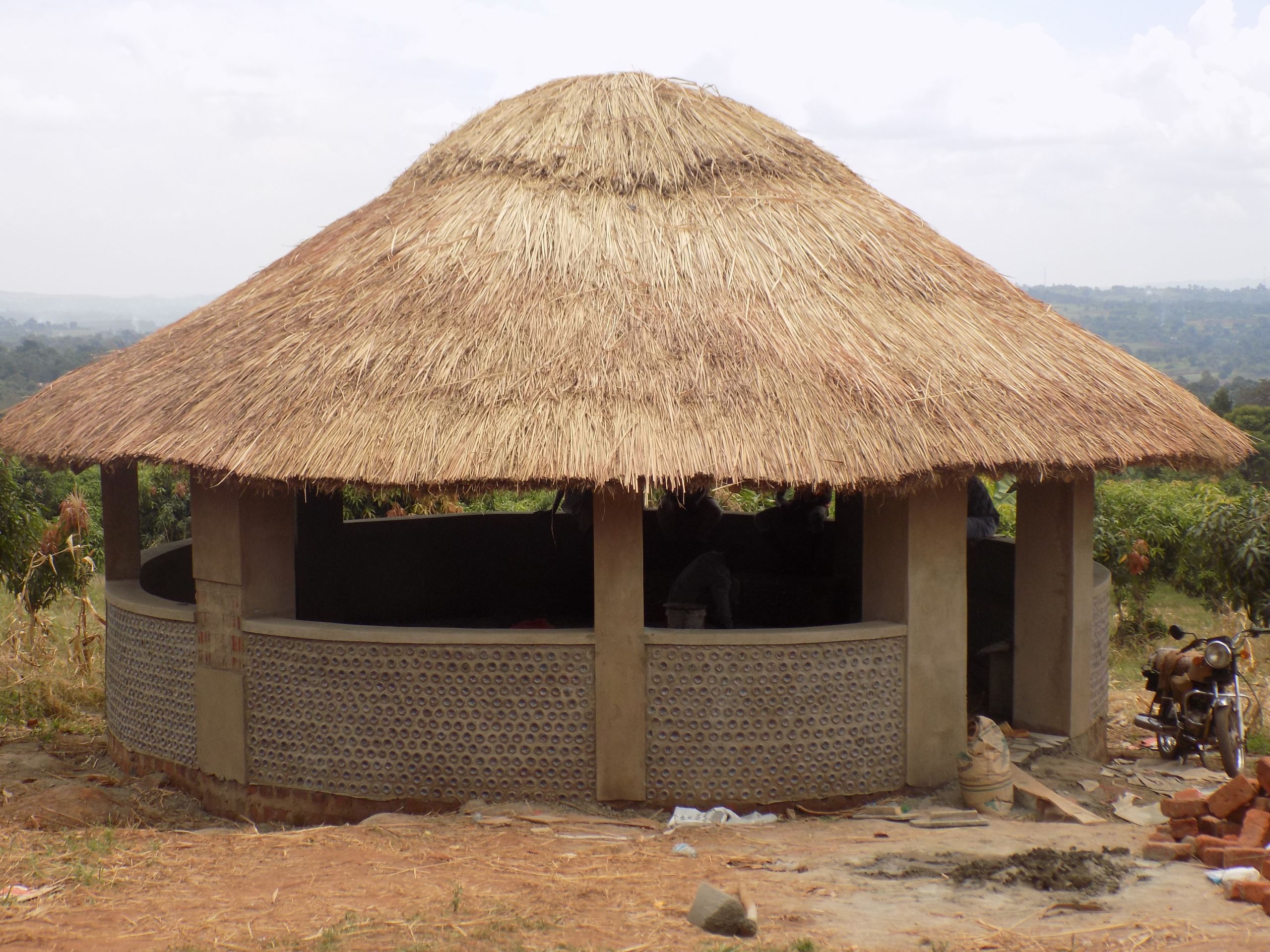
The building complete
The building complete
"Not only is this a fantastic space for the children to learn, to have meetings in and to offer private counselling to the children in, but it has also been very popular with our supporters, and even led to new partnerships with other organisations in Uganda and new interest from past funders. This is because it has been built using recycling of plastic bottles combined with a more traditional Ugandan architecture style."
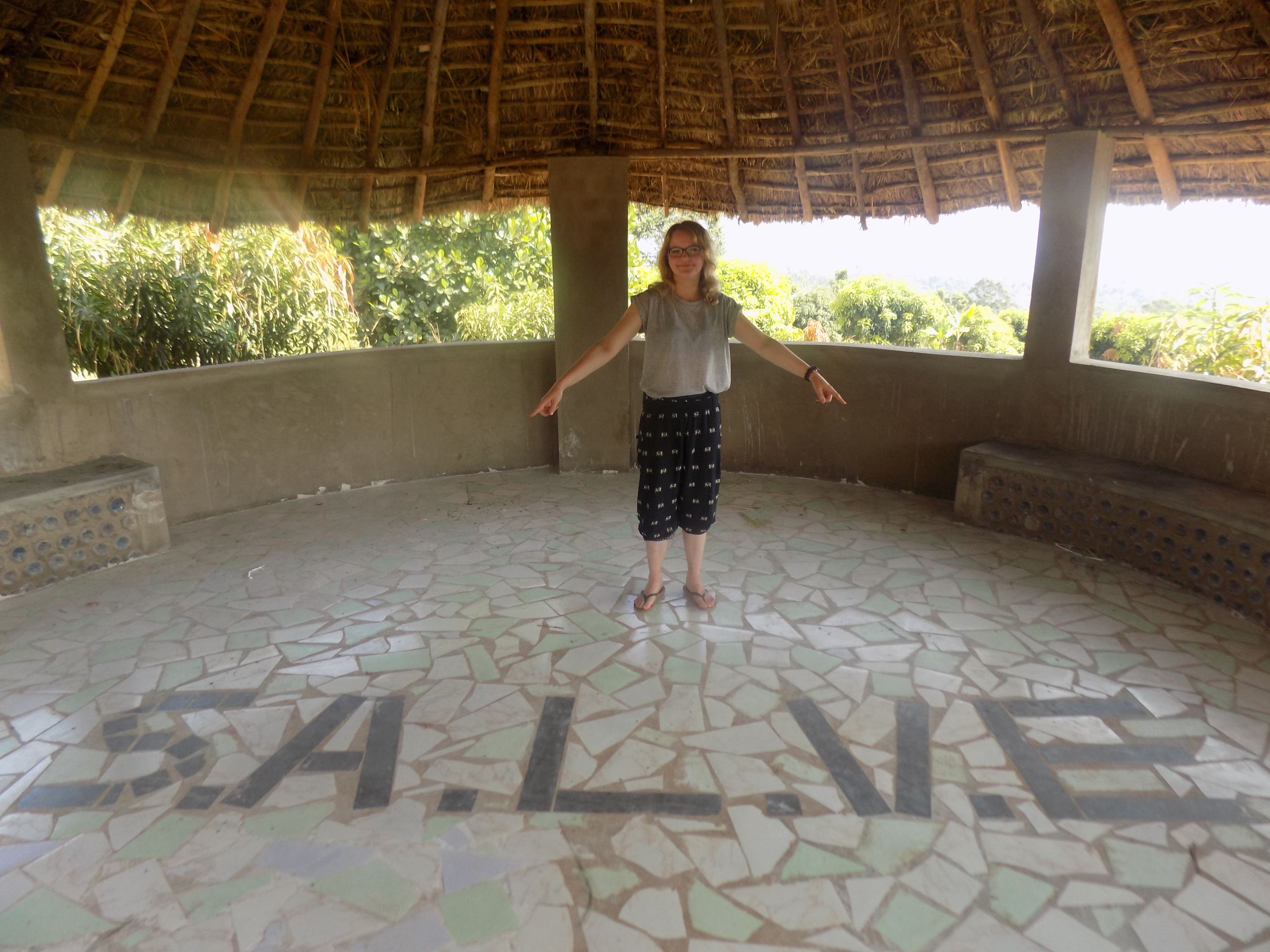
Inside one of the plastic bottle classrooms
Inside one of the plastic bottle classrooms
